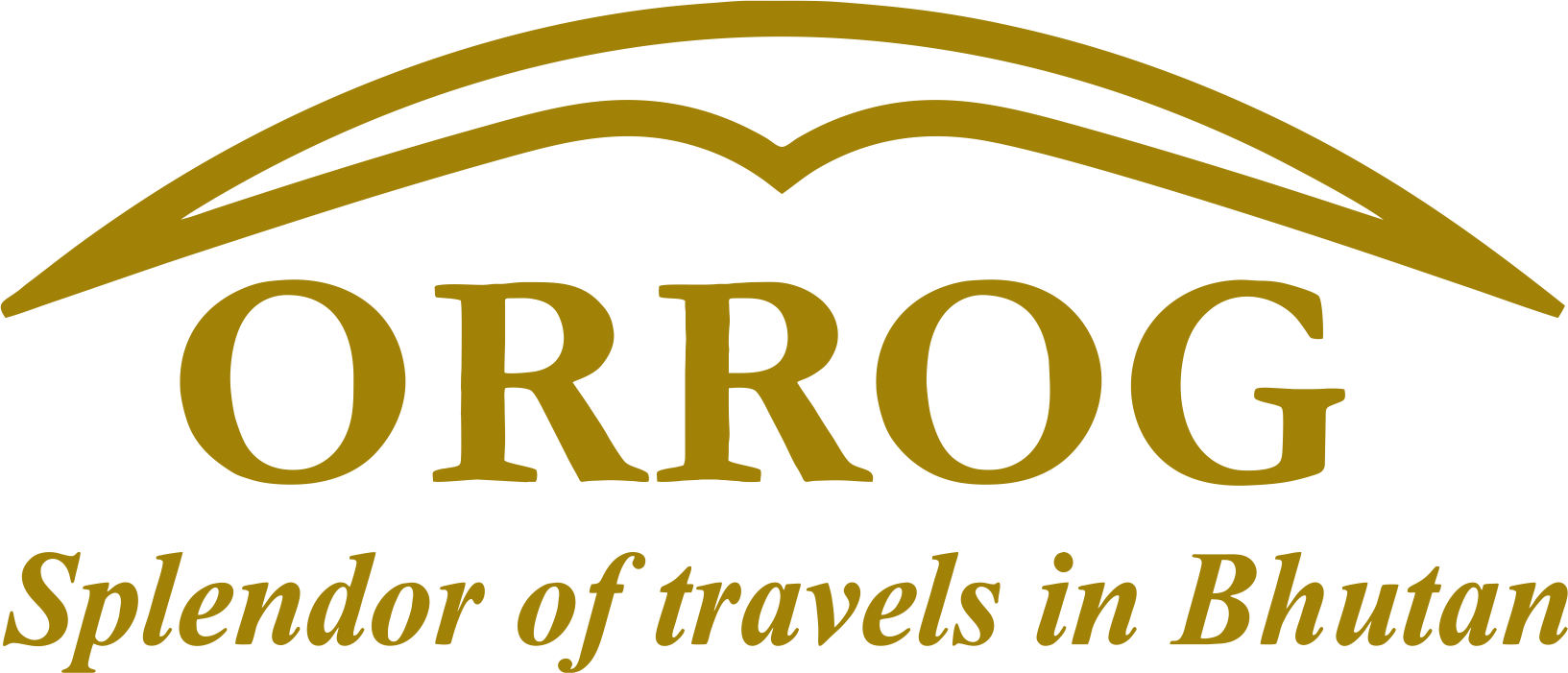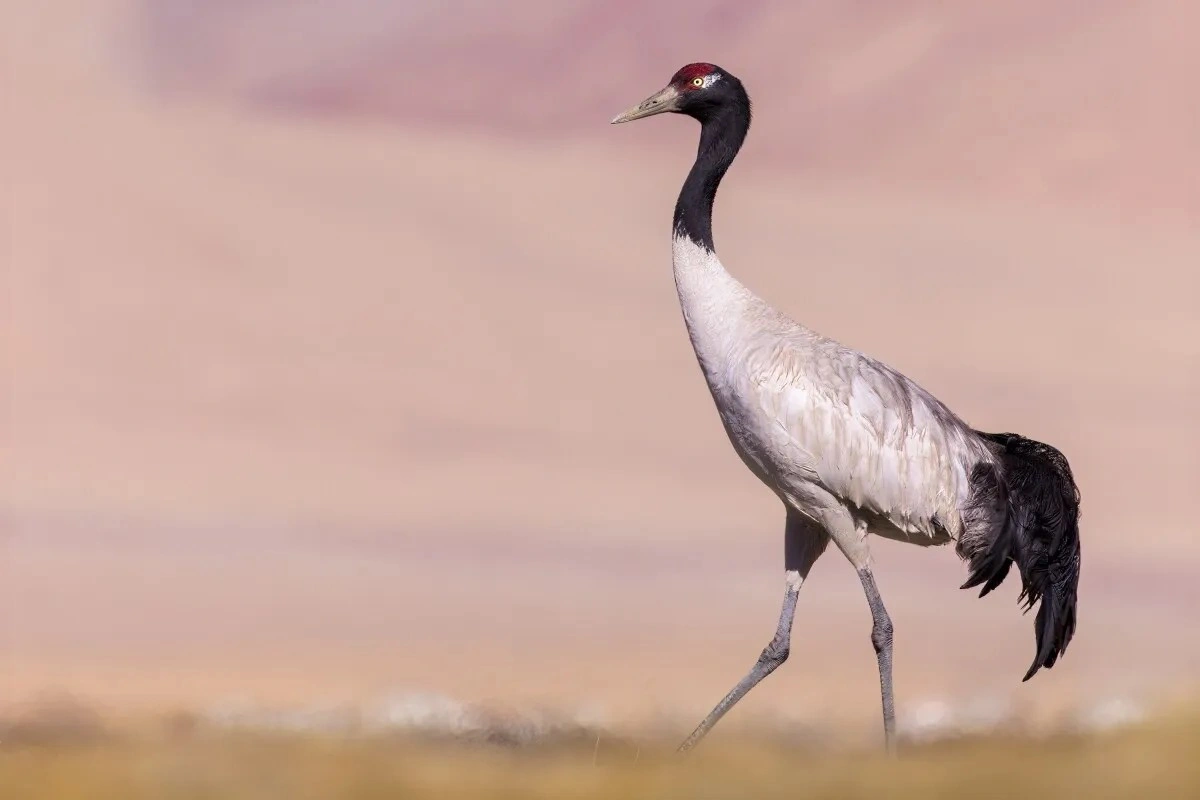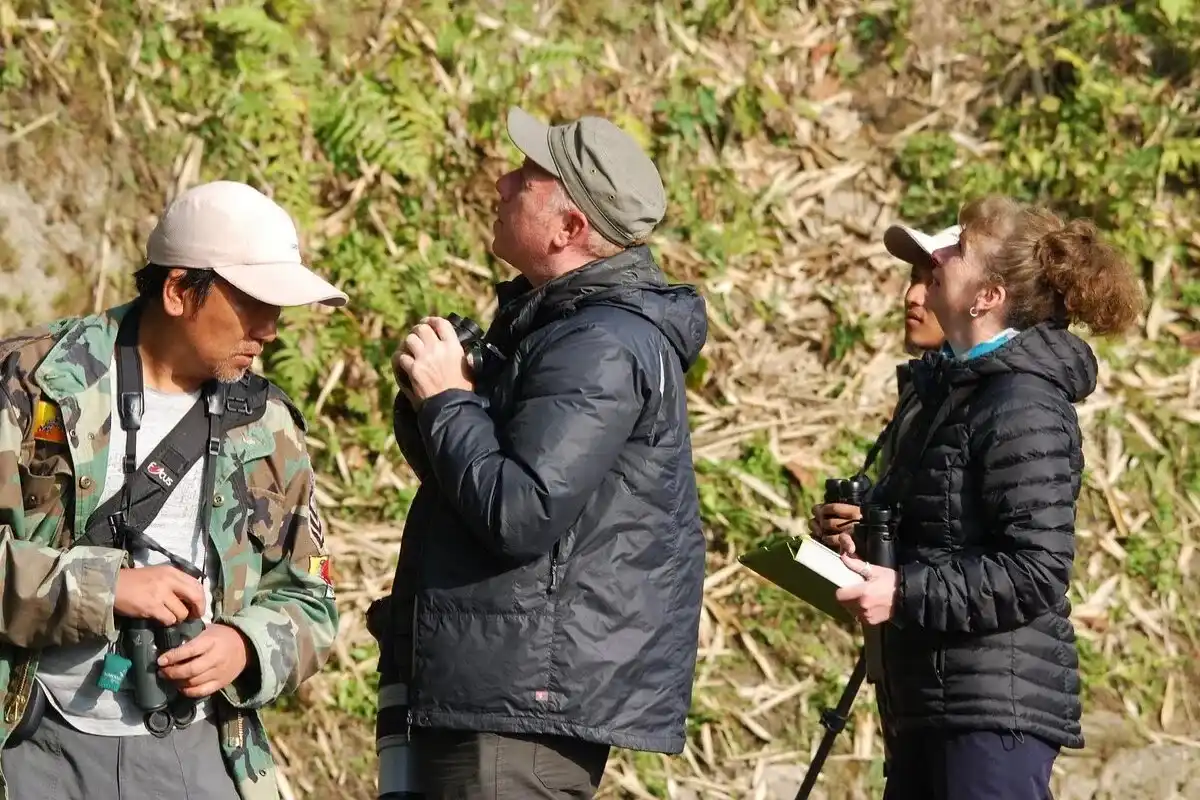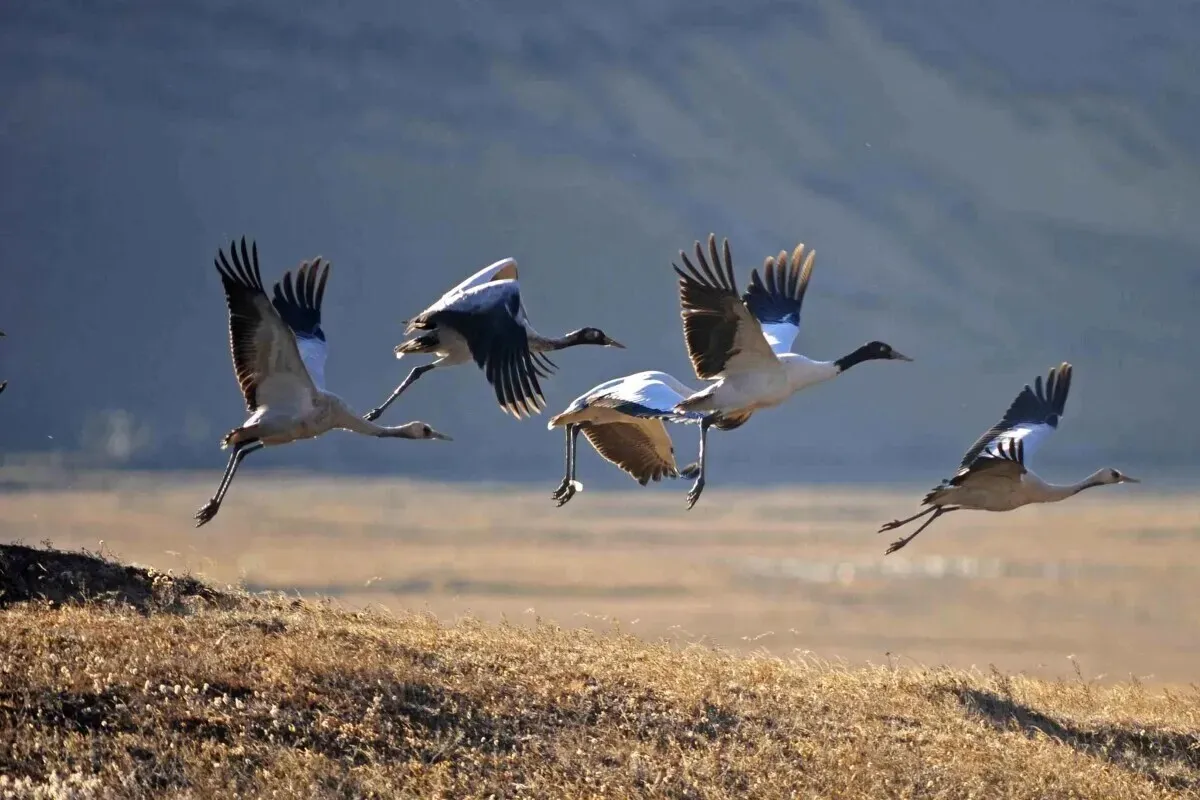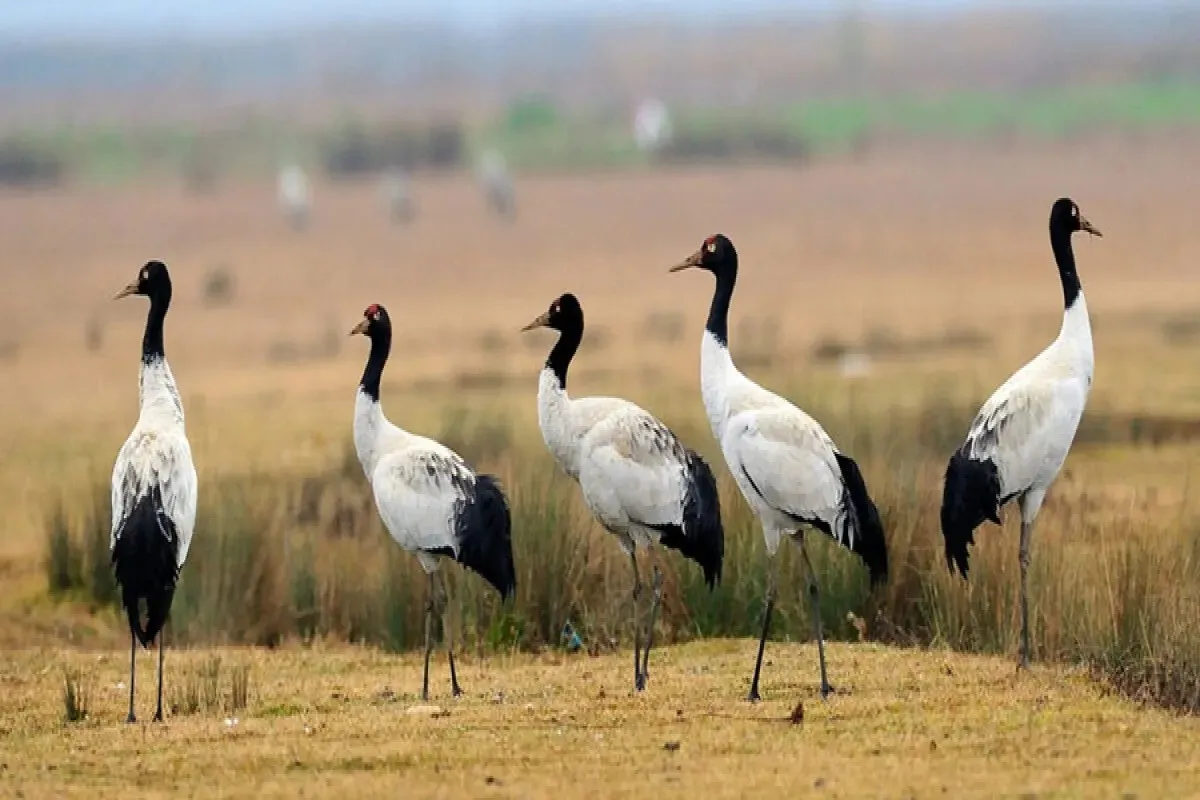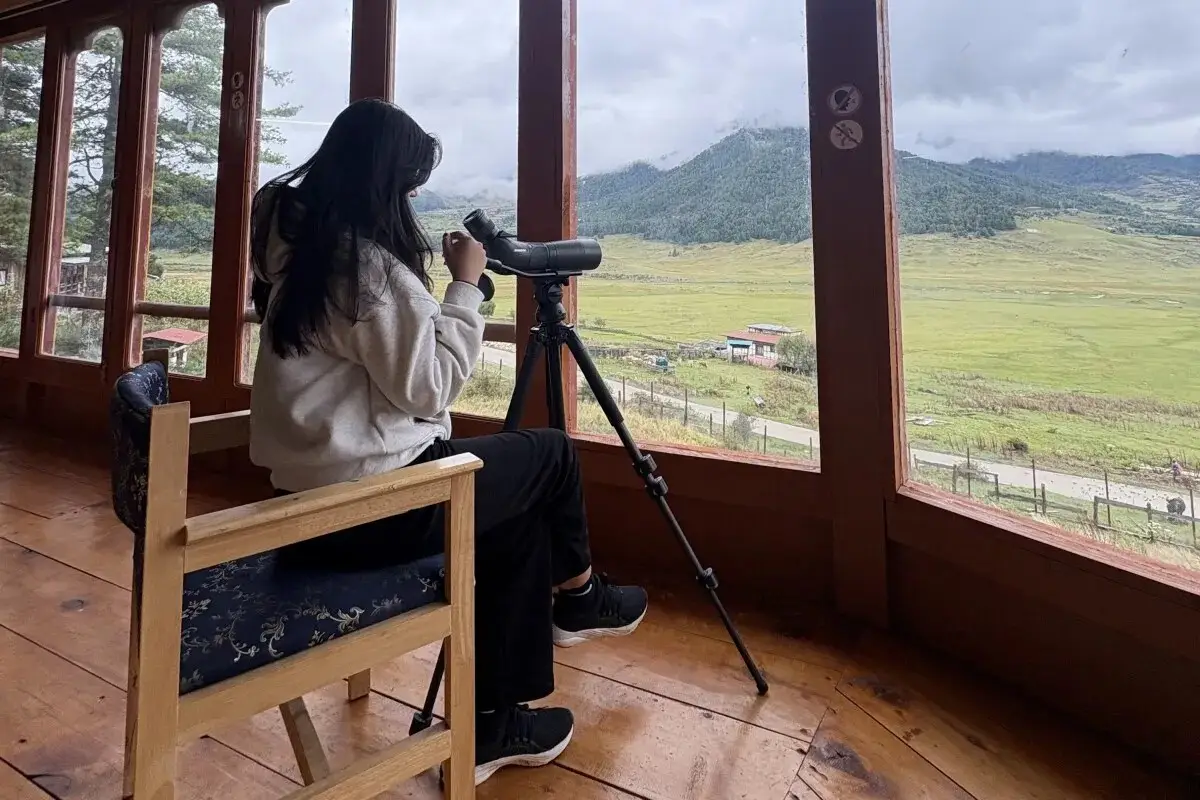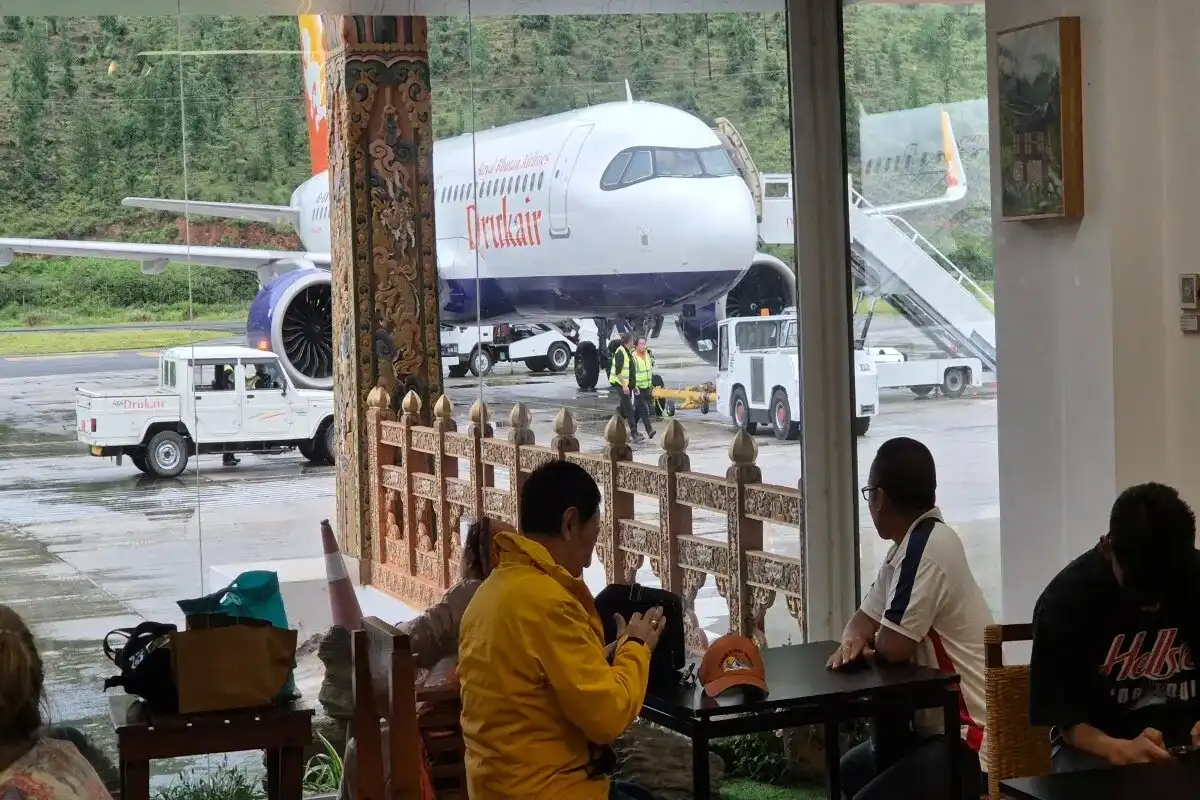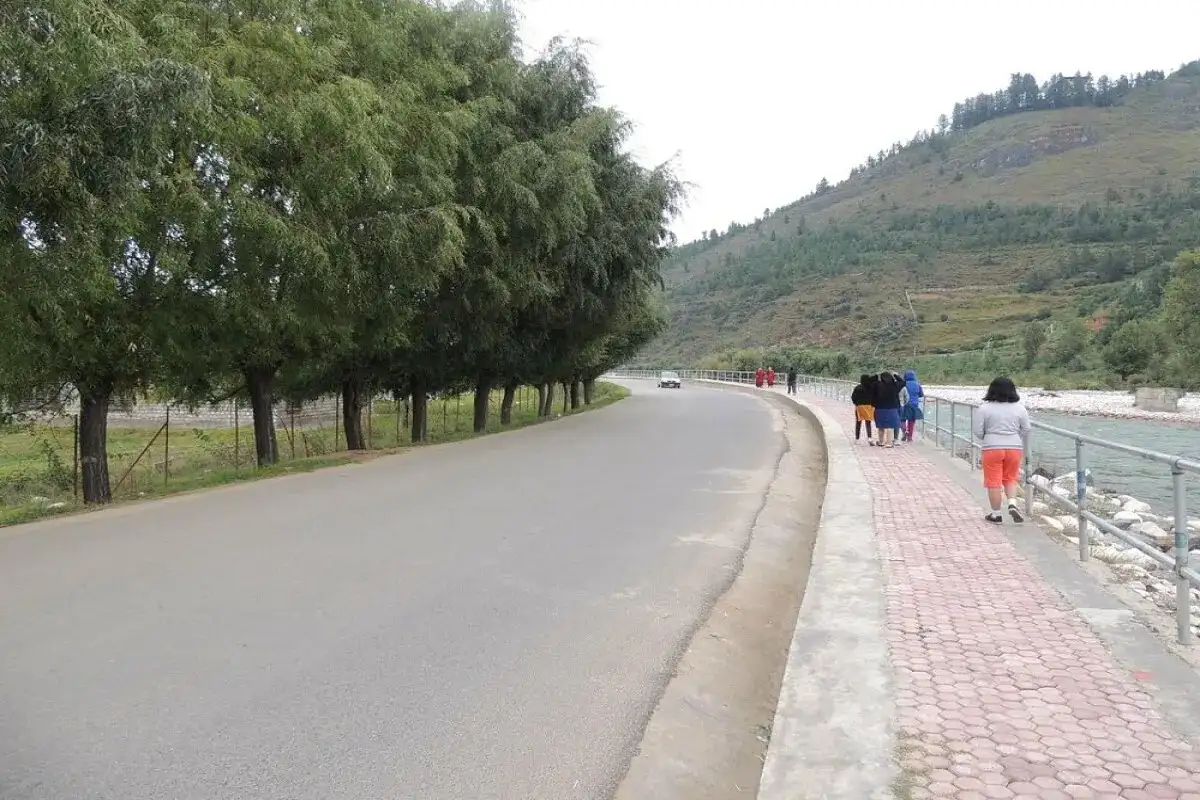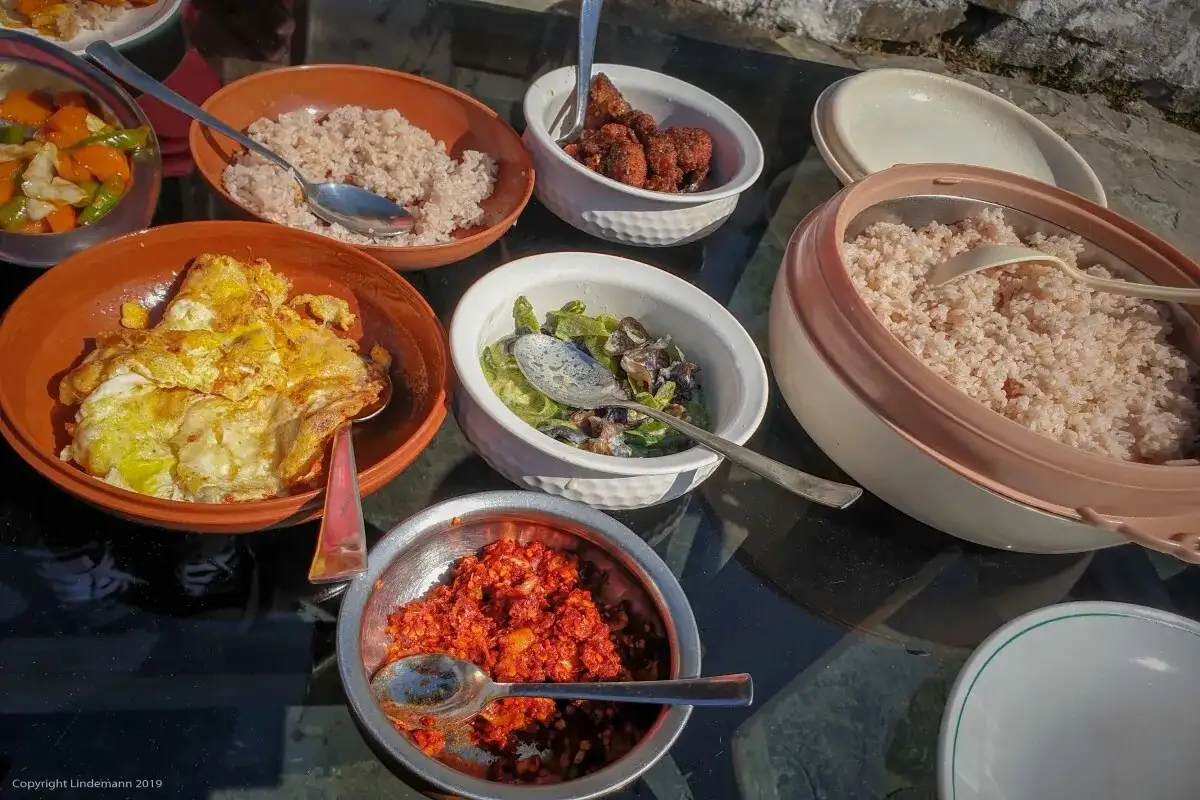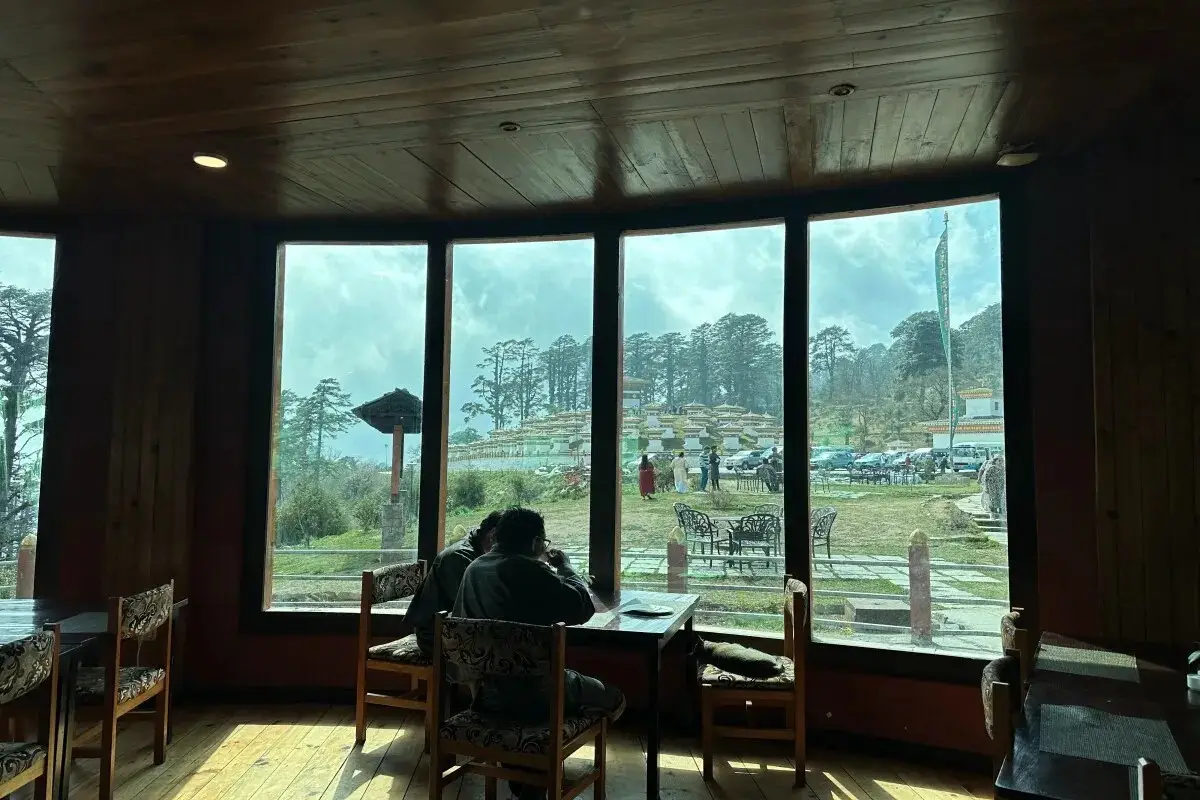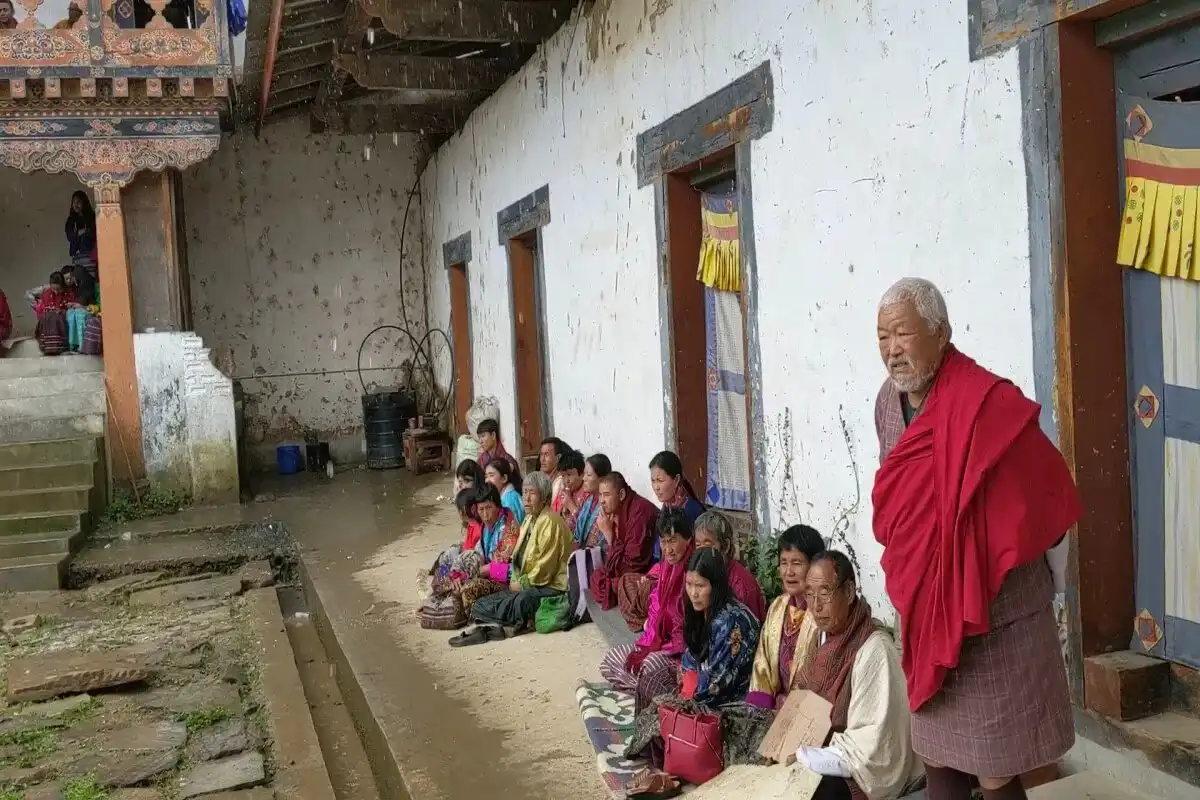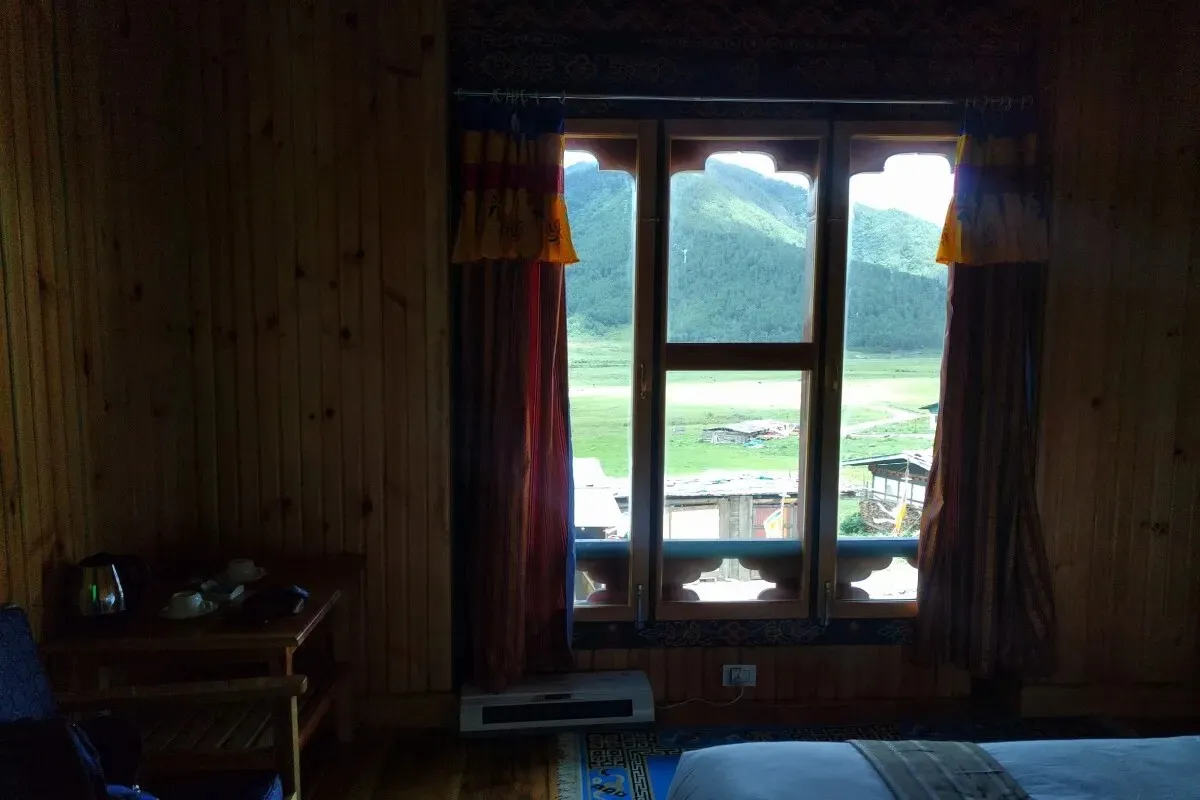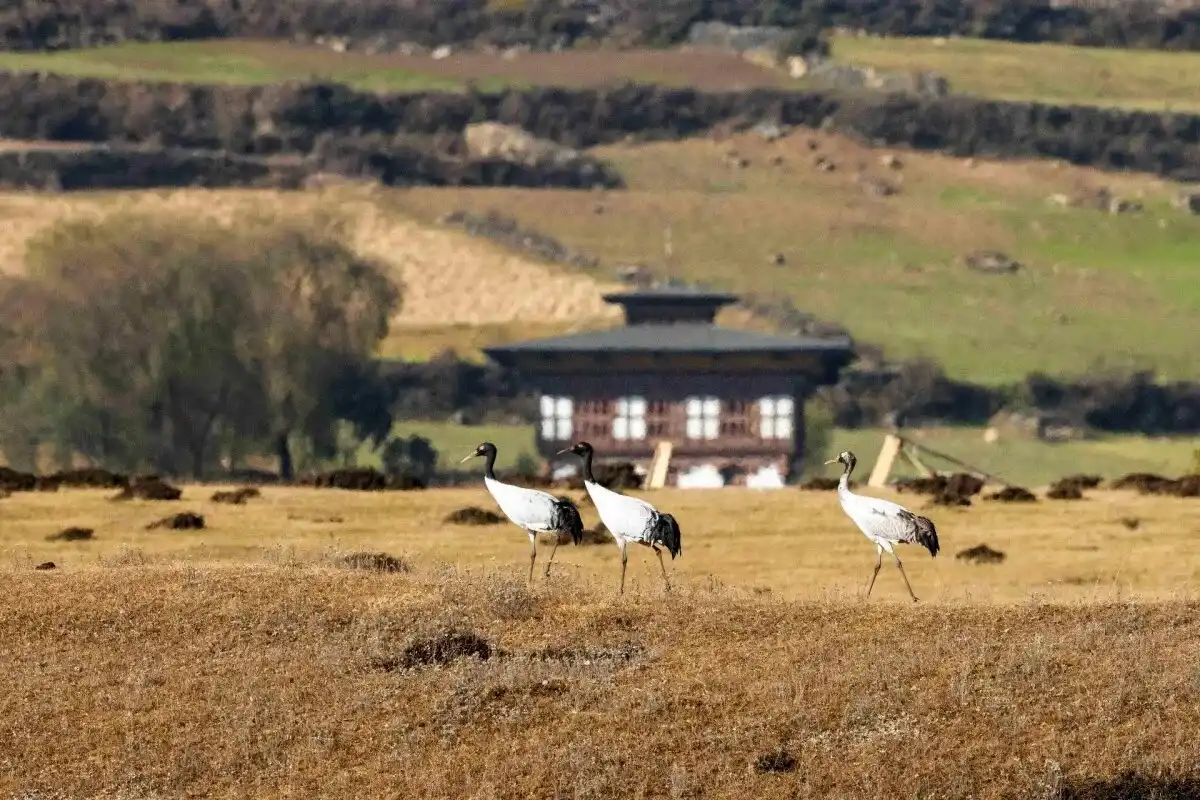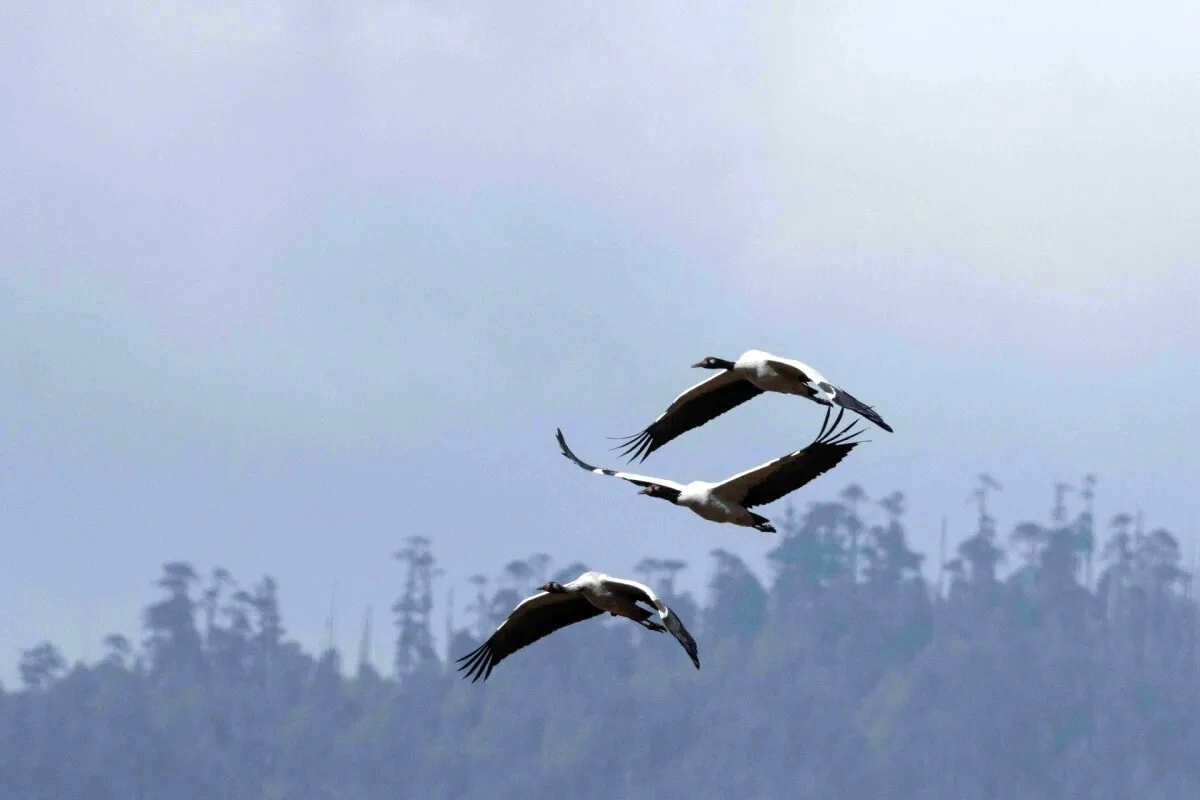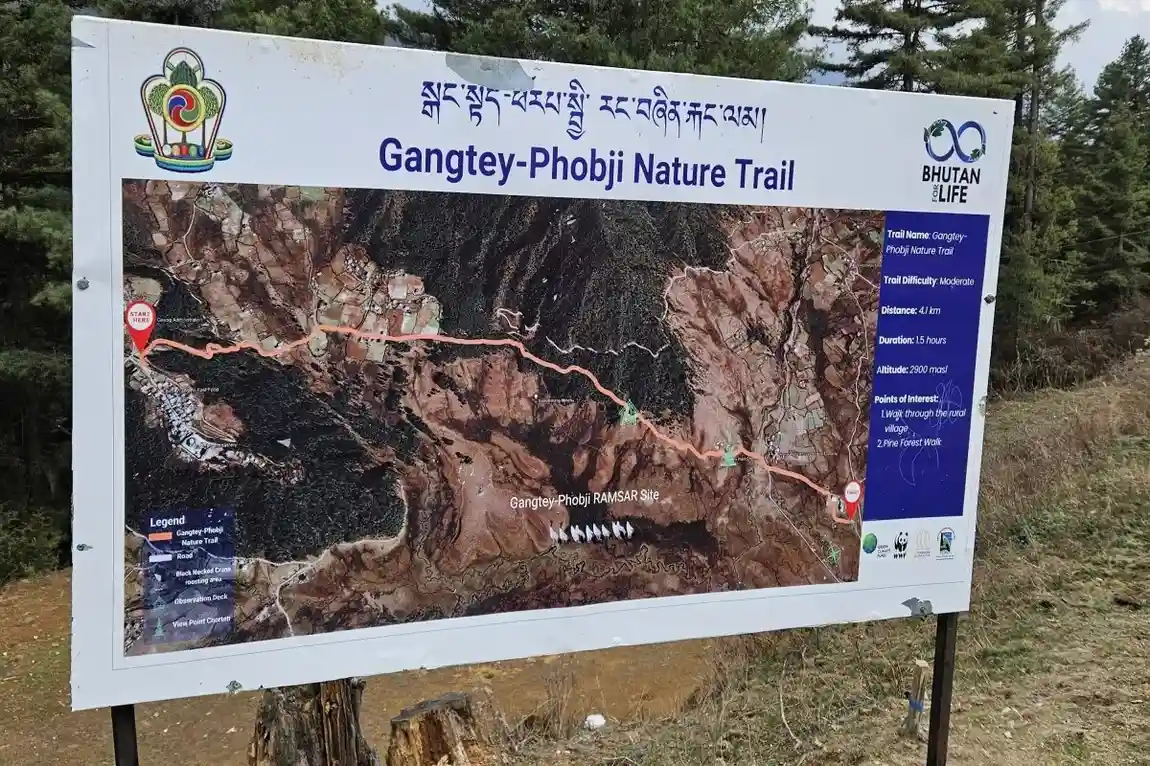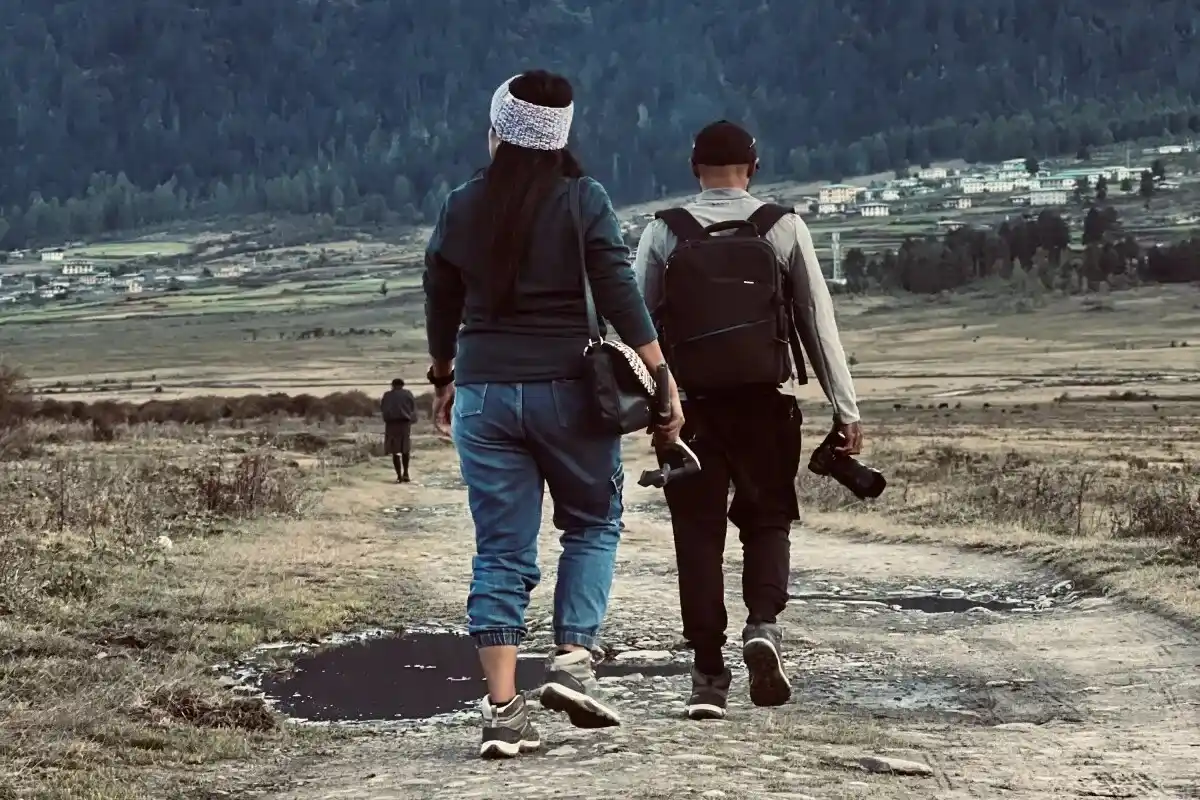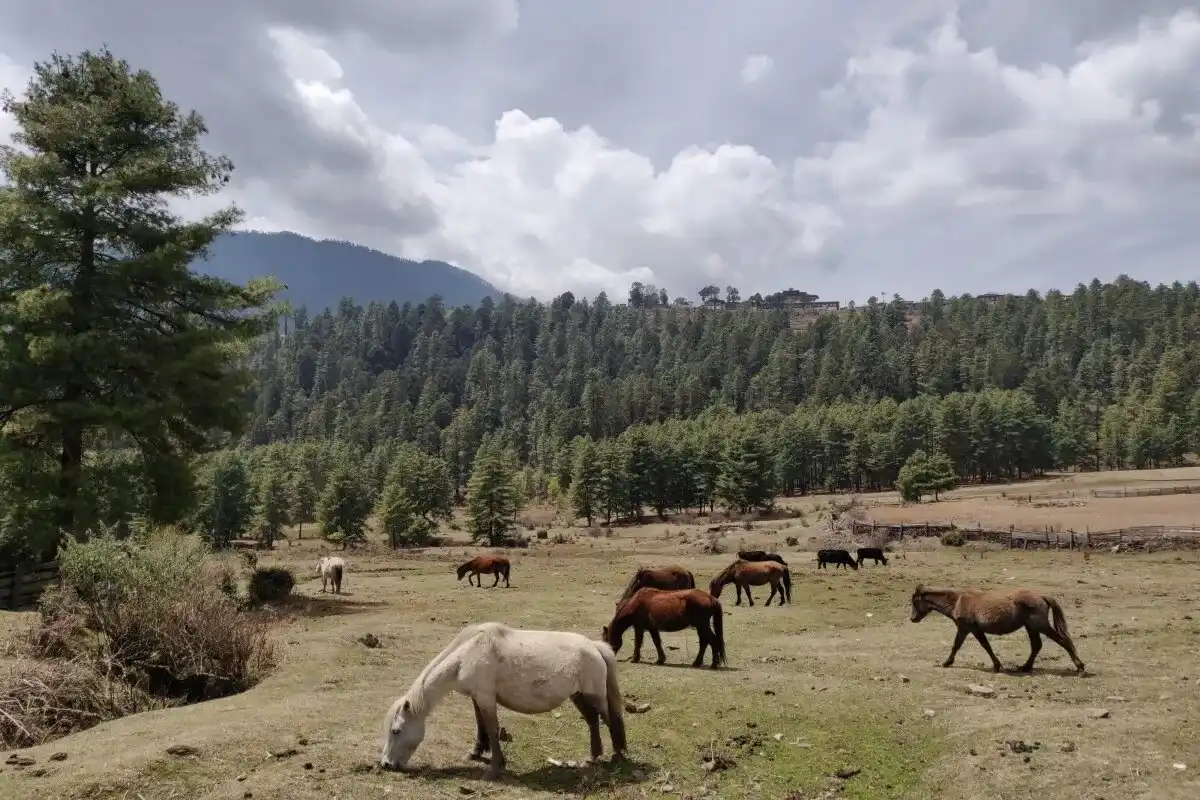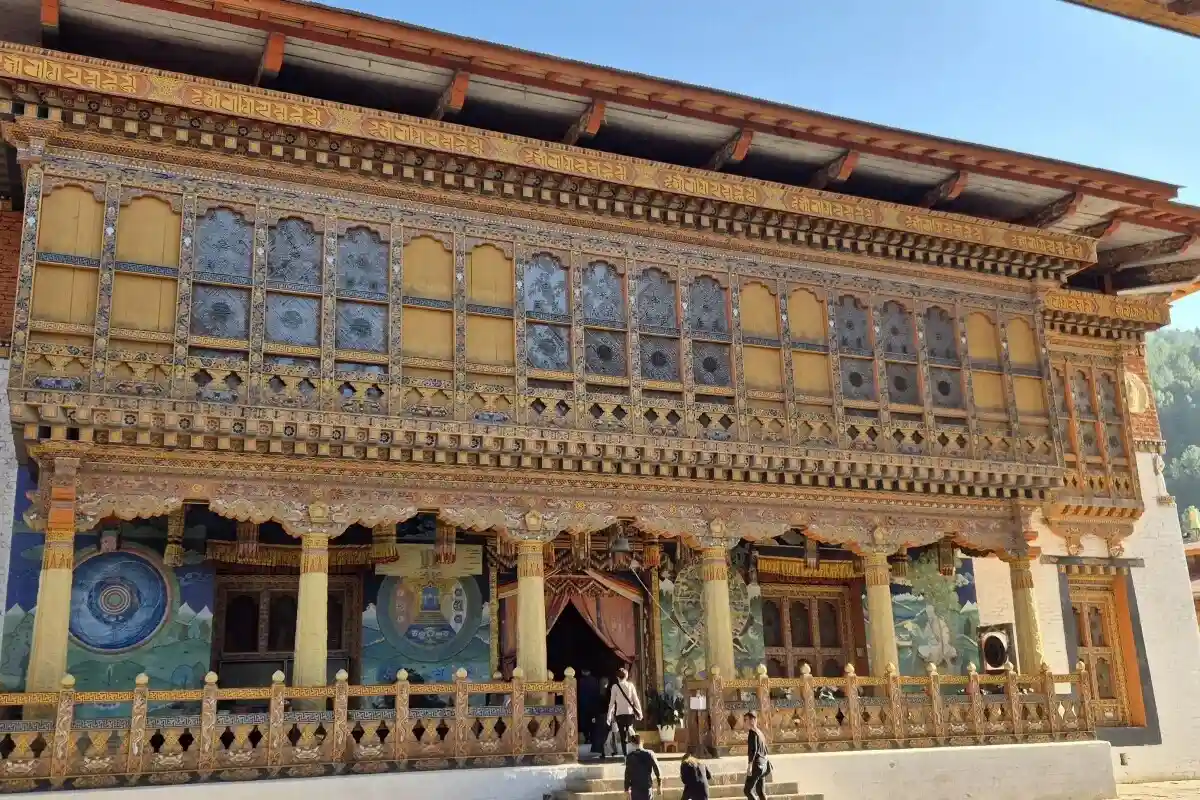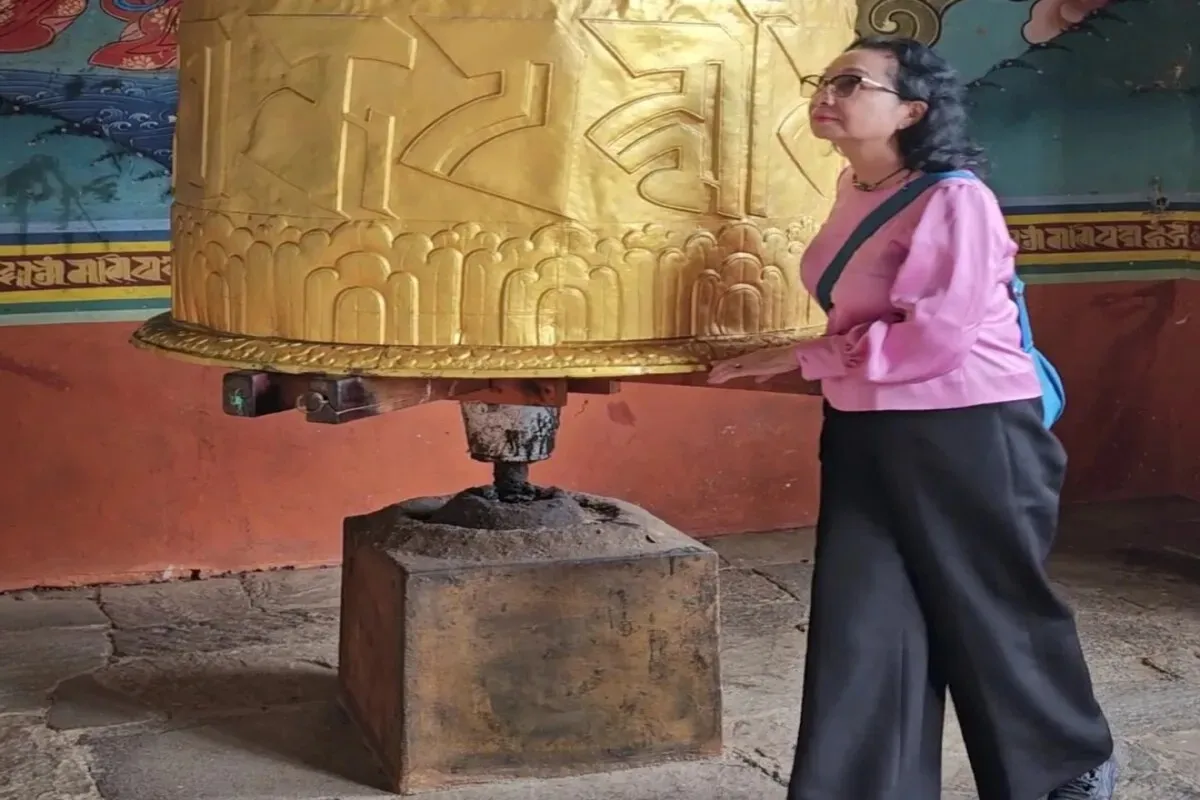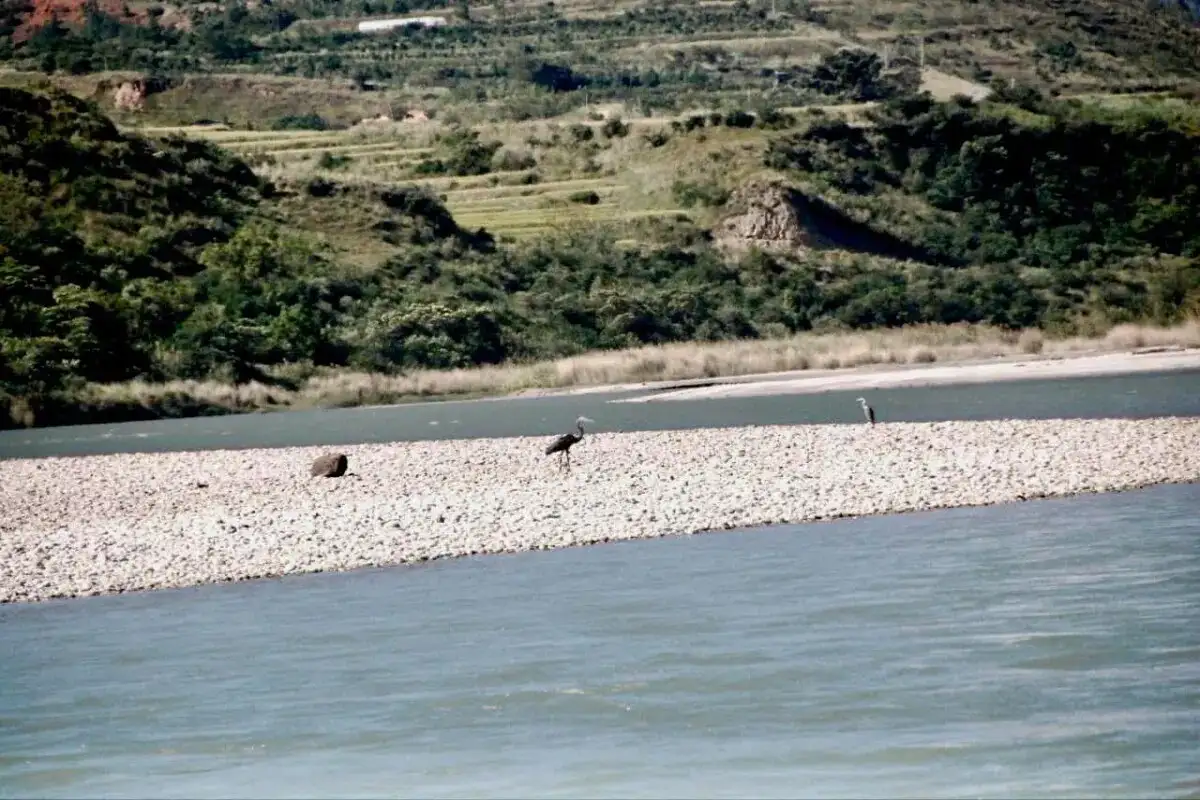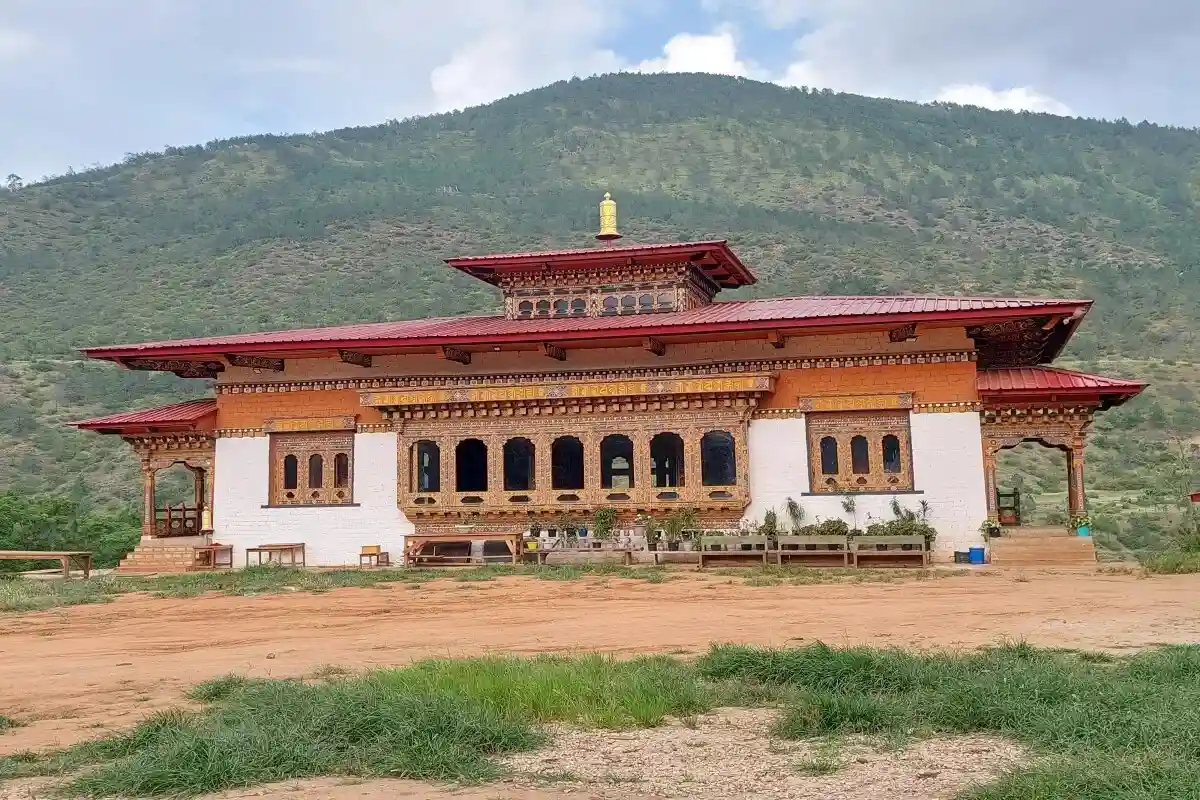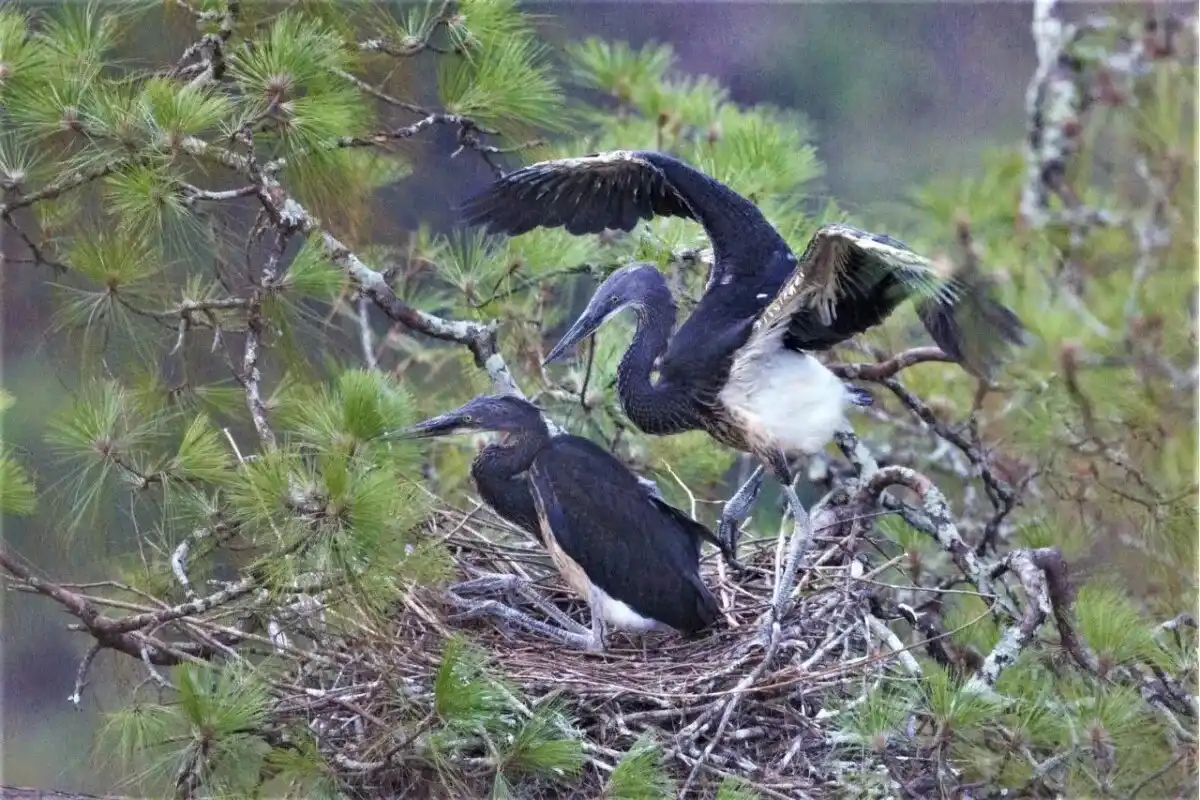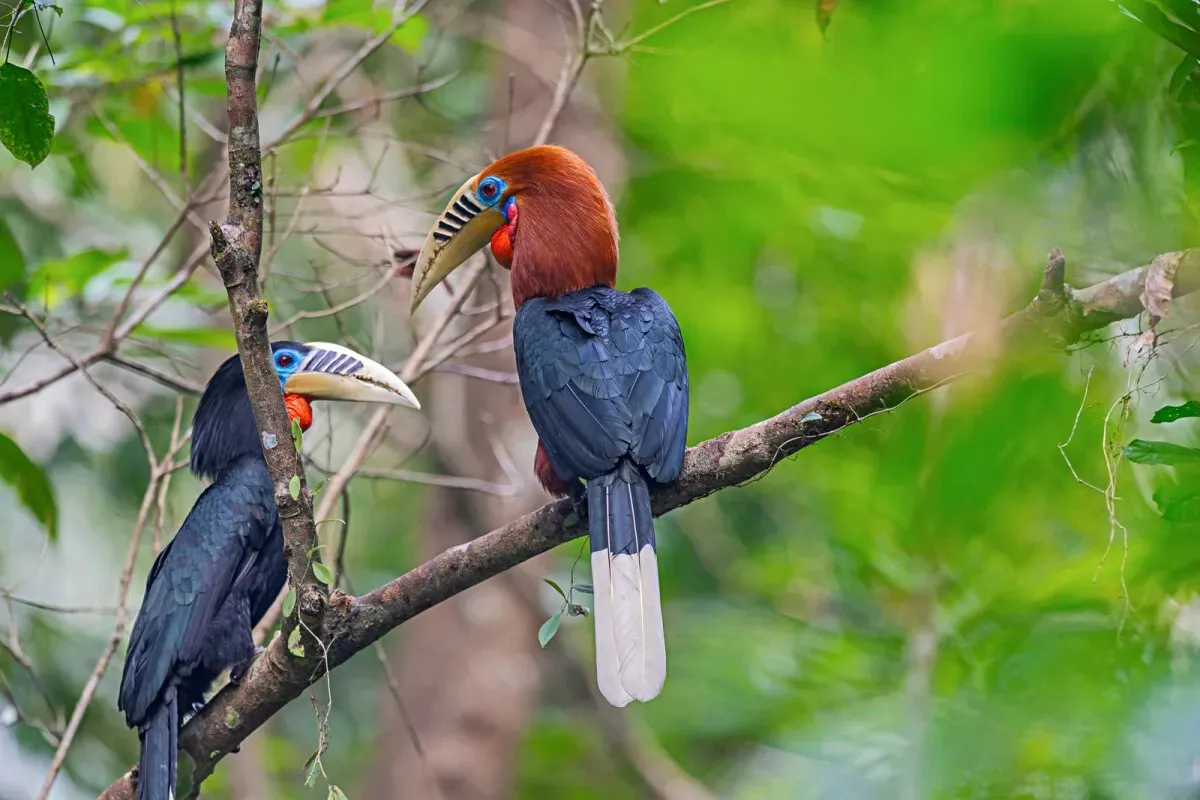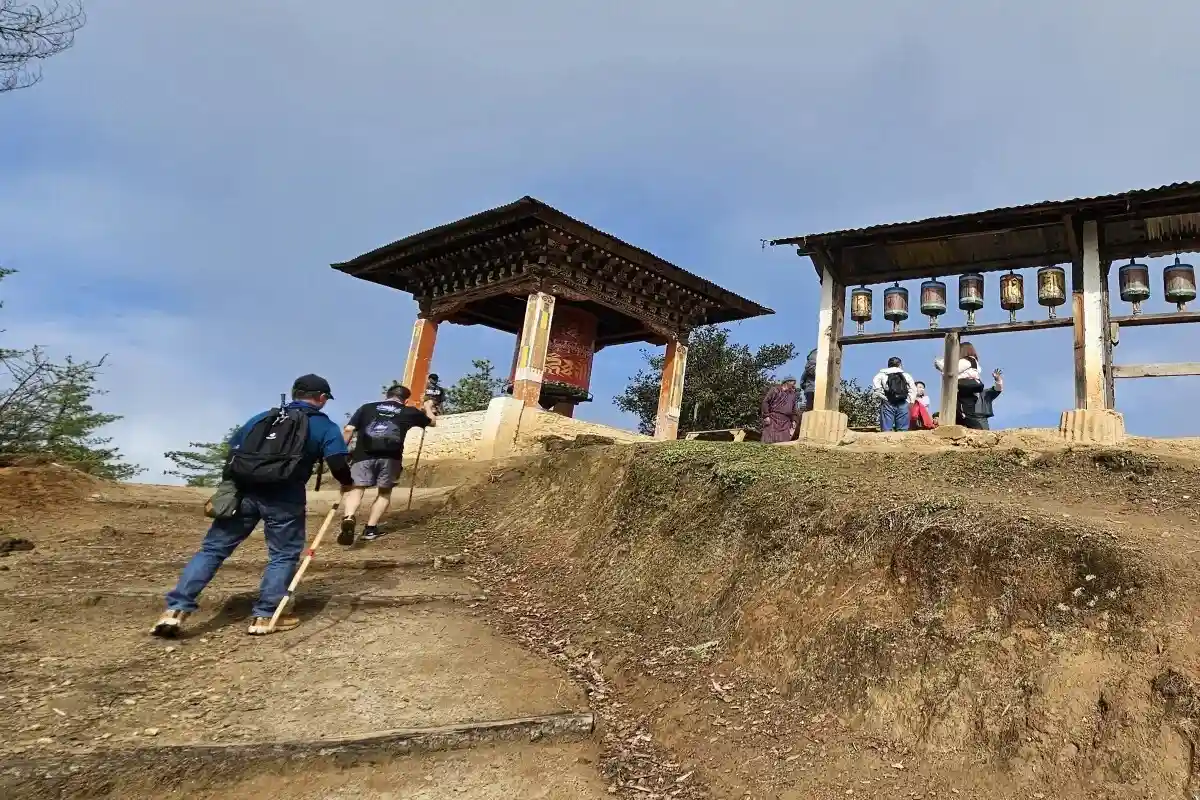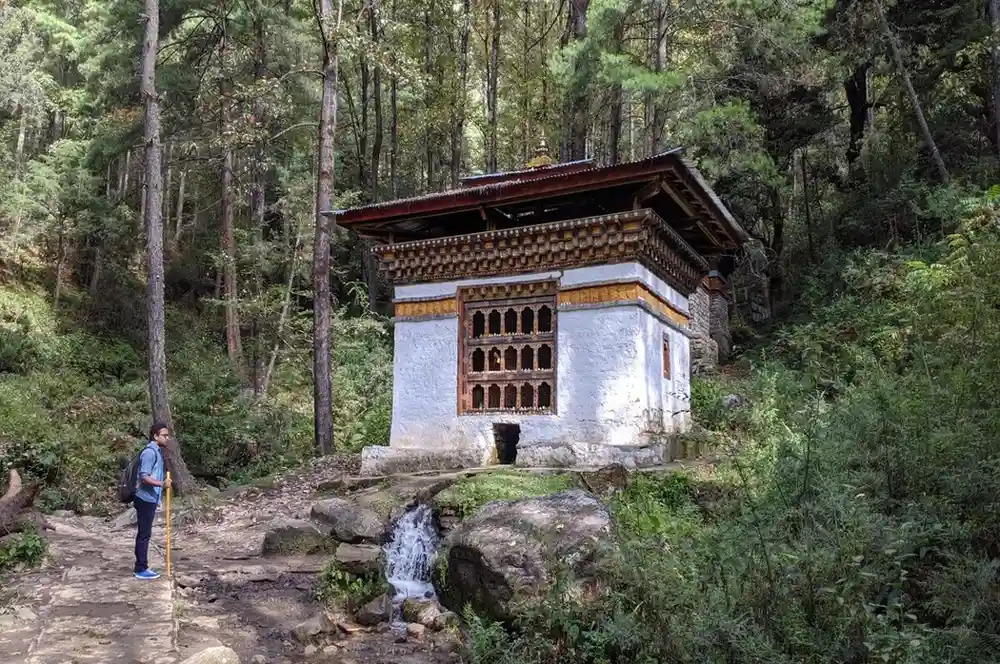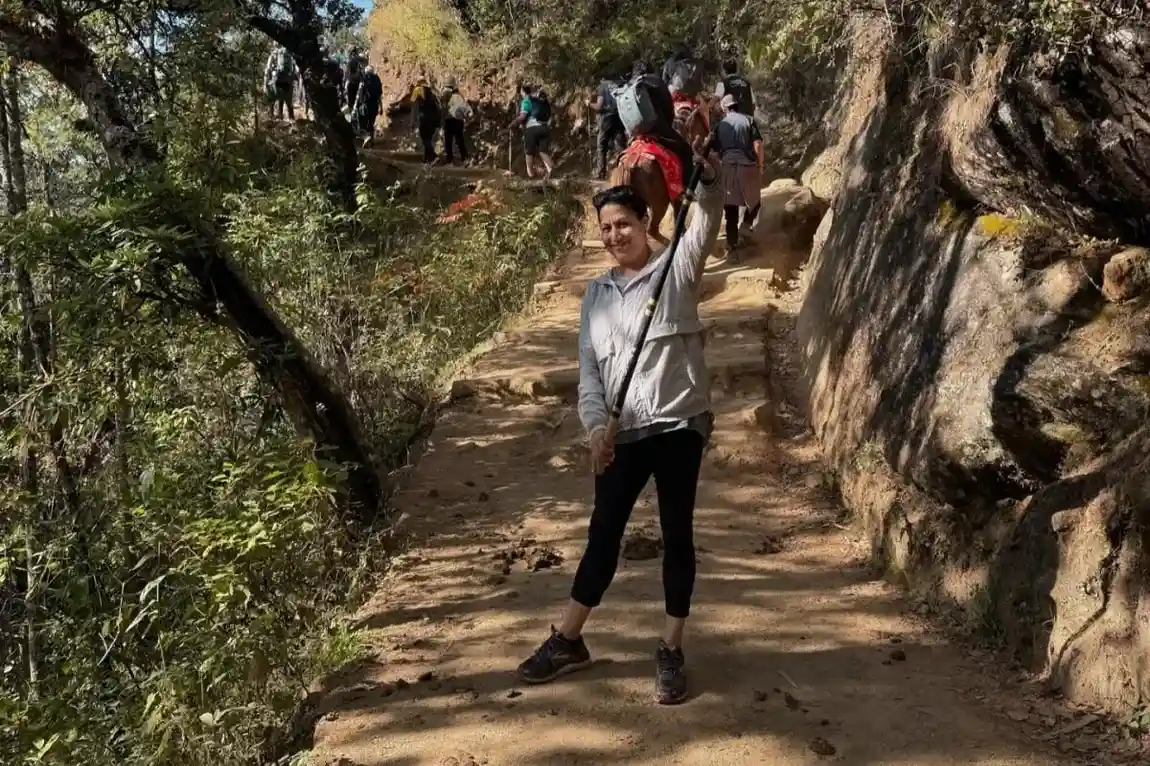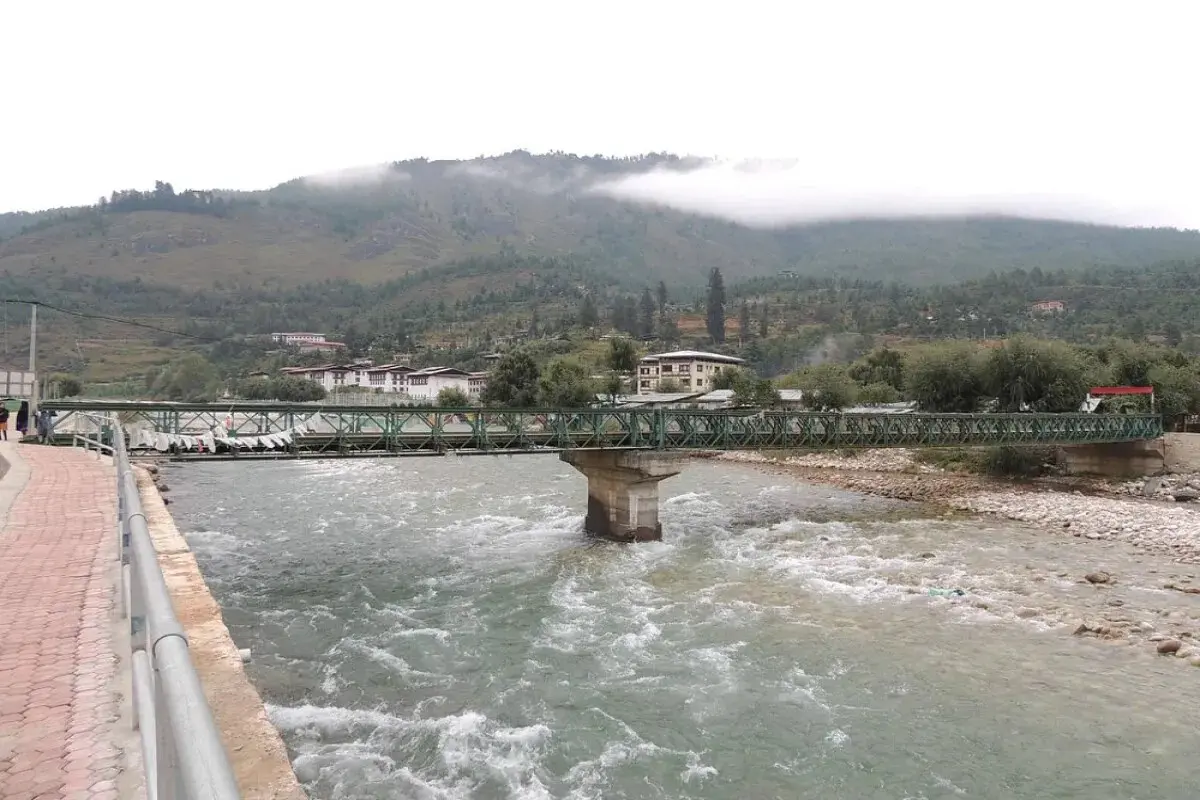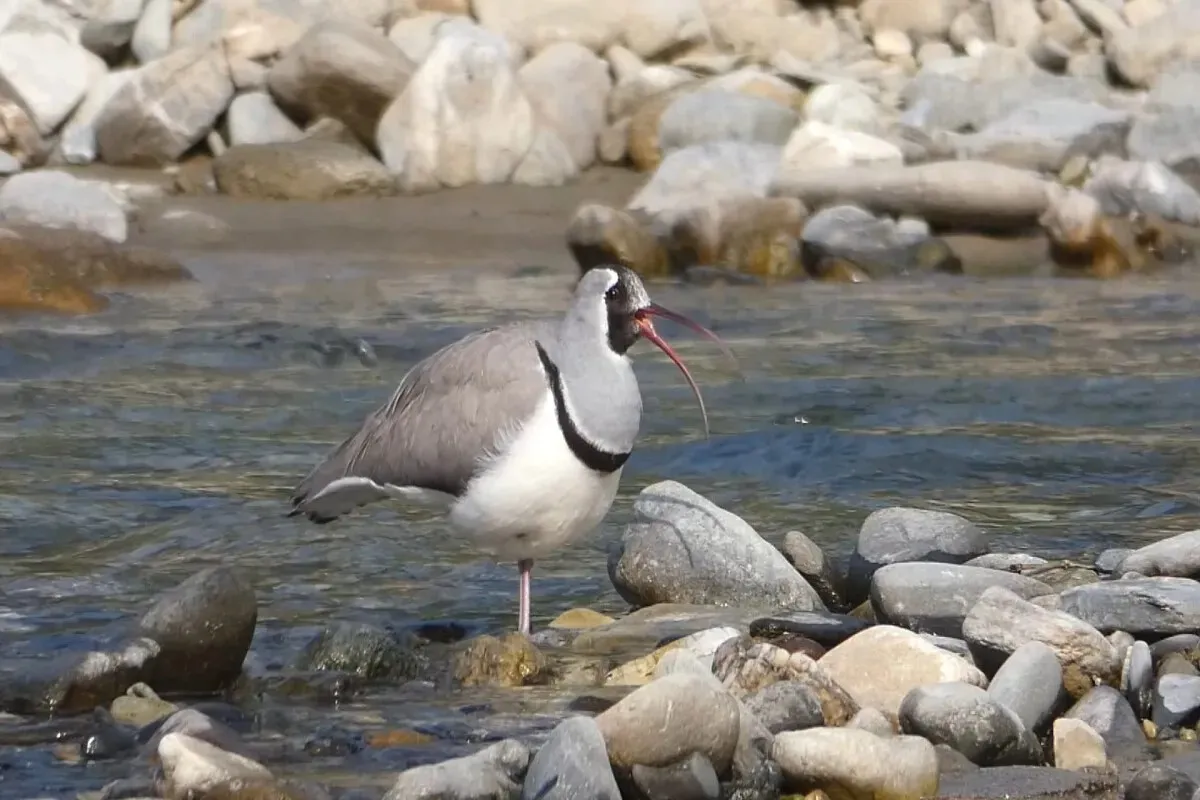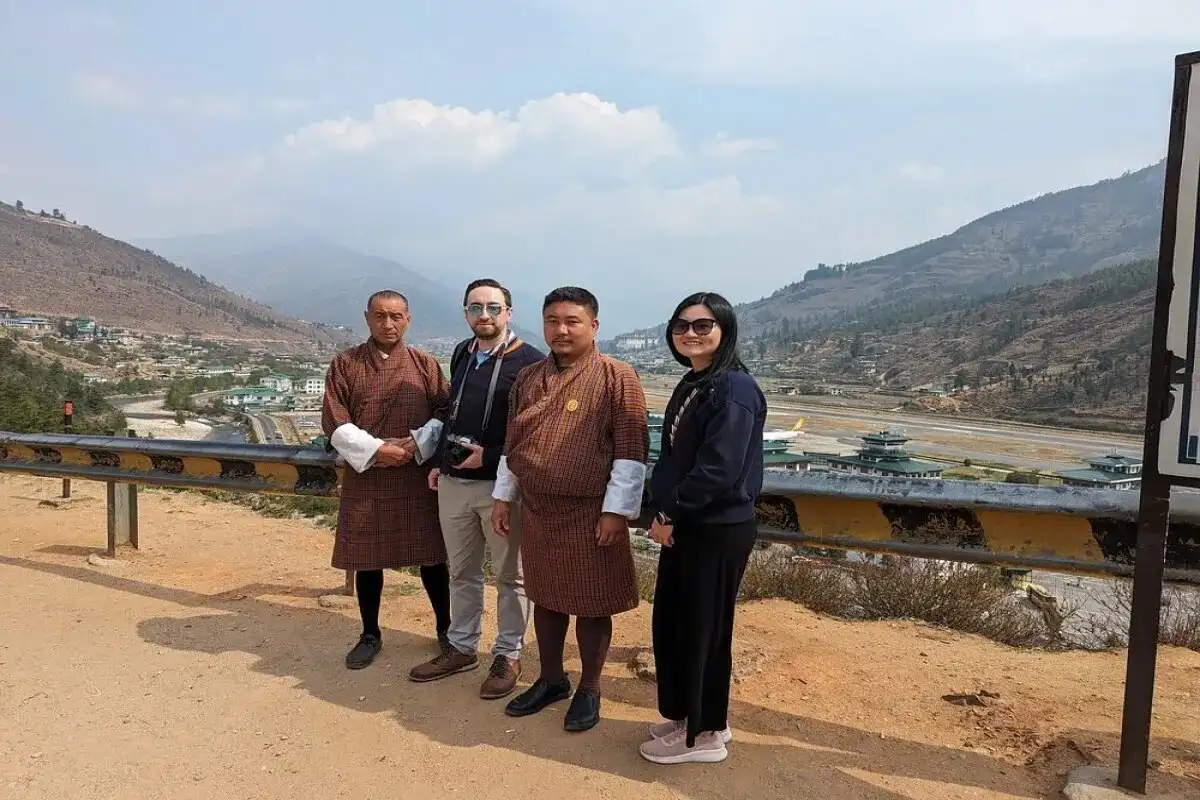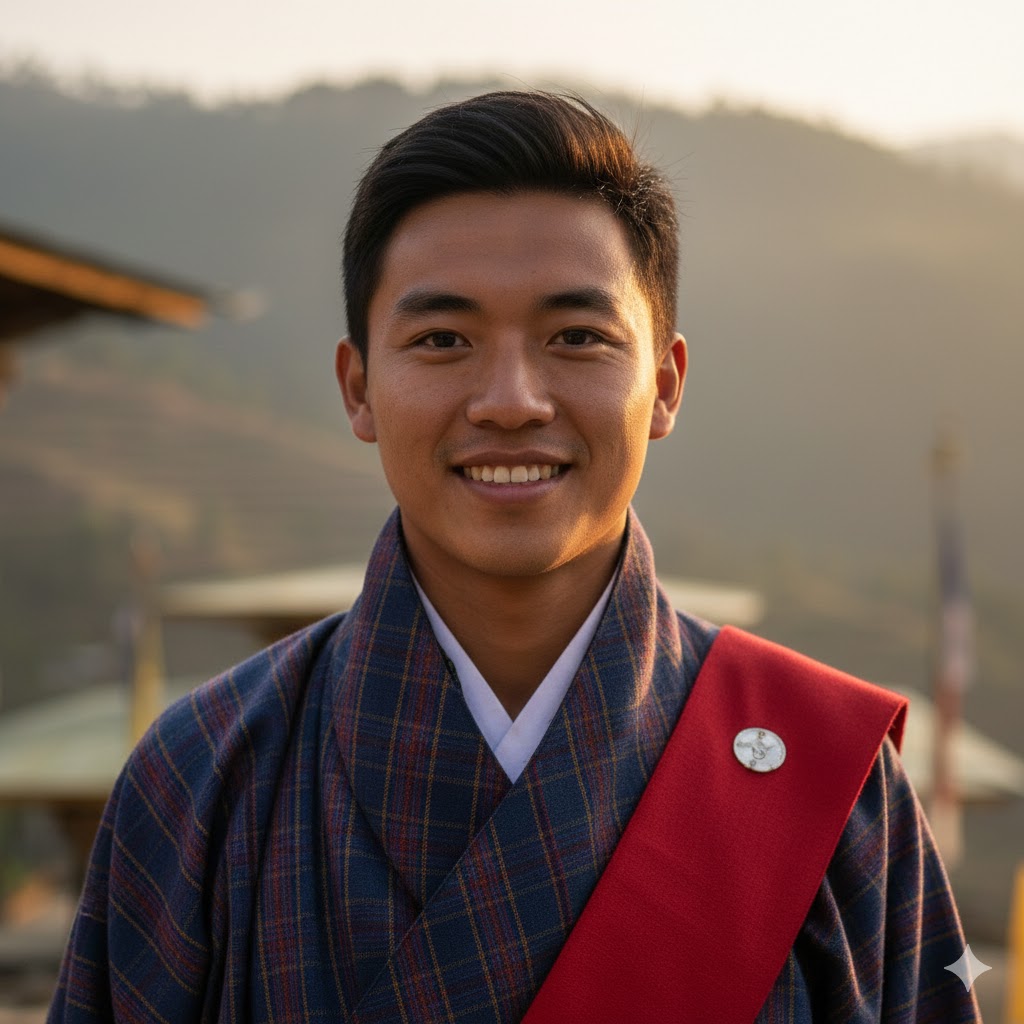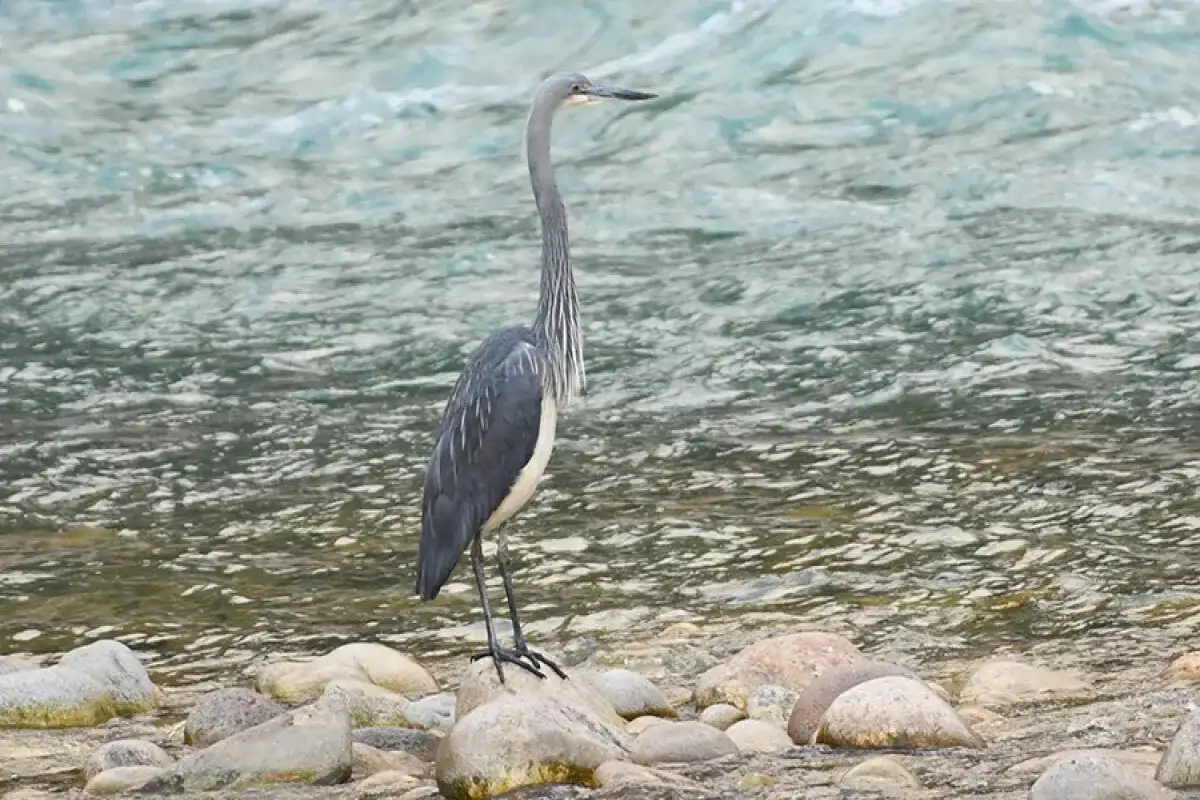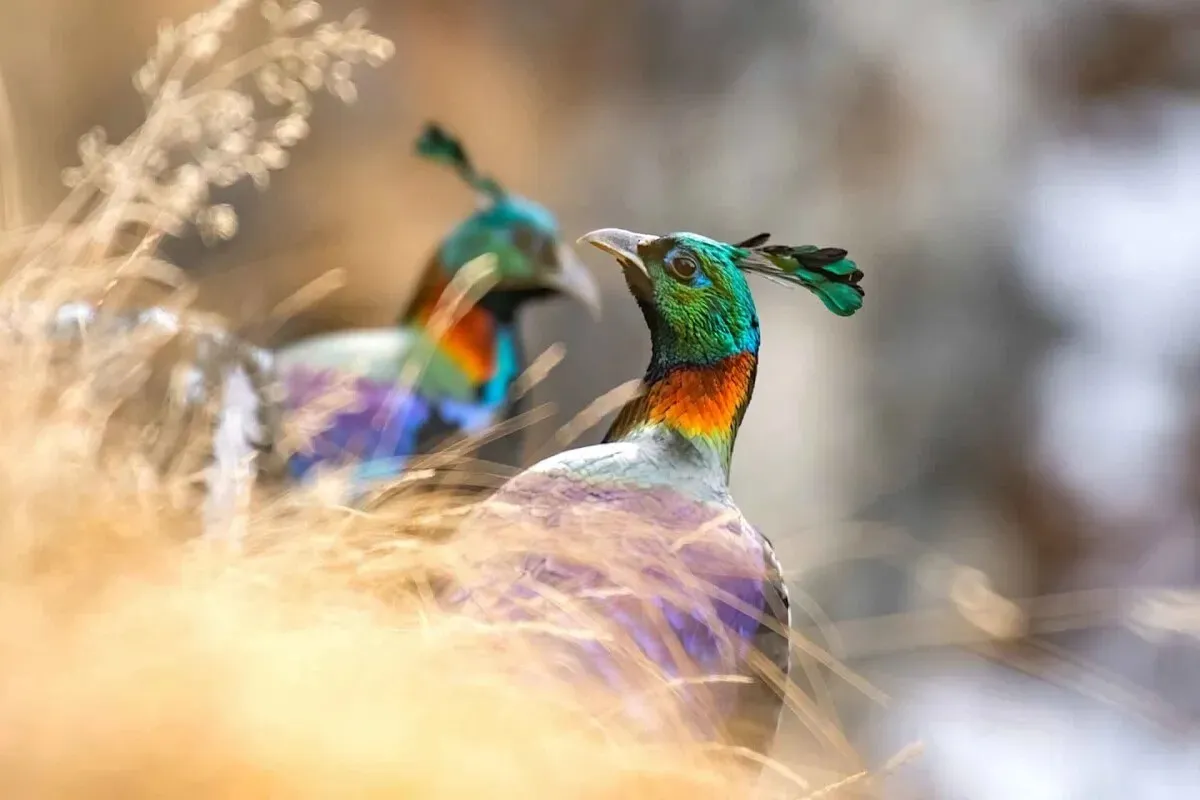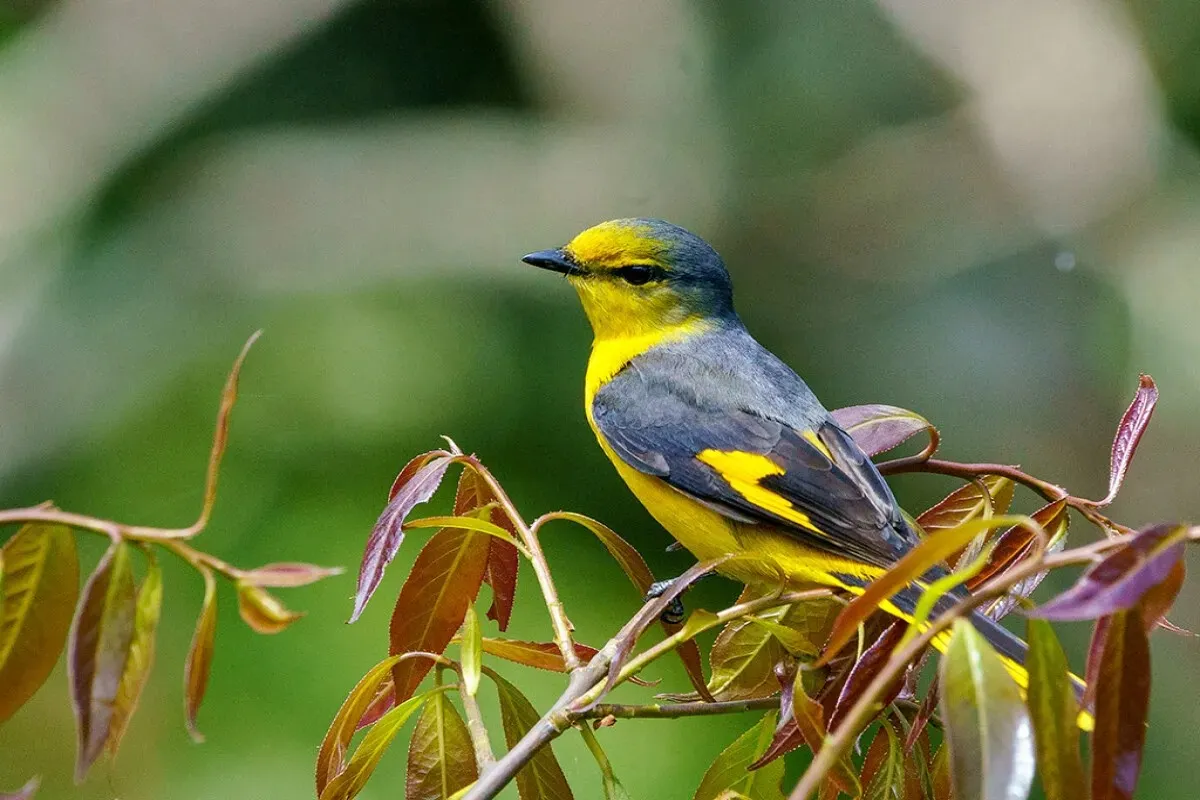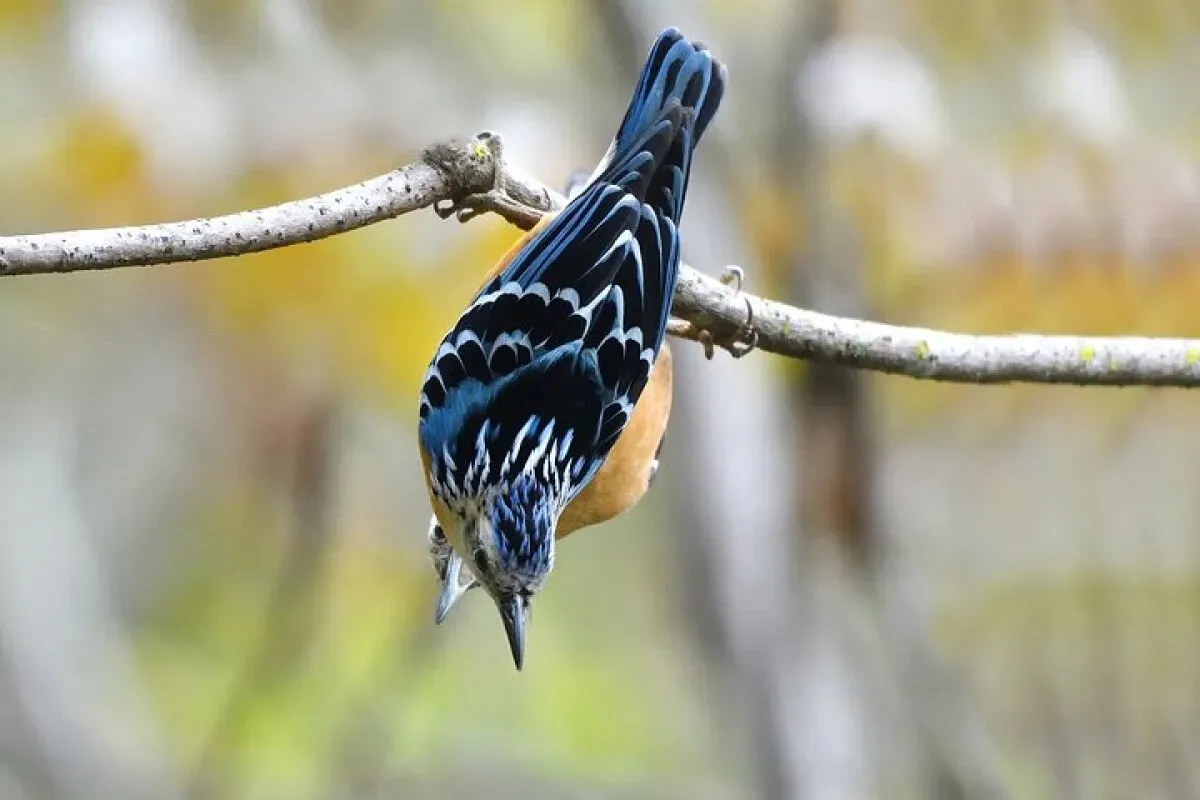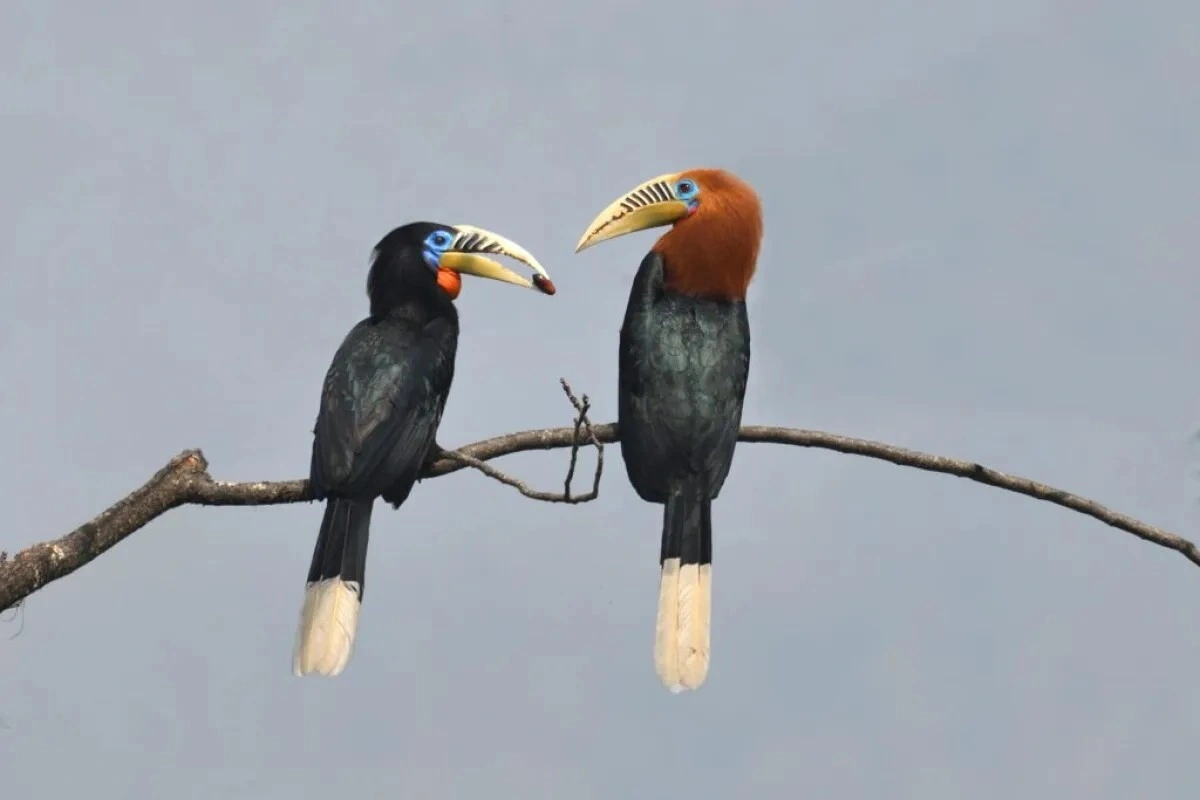Bhutan Black-Necked Crane Tour - 8 Days
The Black-Necked Crane Tour in Bhutan is a special 8-day tour for nature lovers and bird watchers, or any other person who likes a peaceful journey. Each winter, hundreds of the beautiful, black-necked cranes migrate to the peaceful valley of Phobjikha in Bhutan. These are sacred and rare birds. Bhutanese believe that they are good luck and blessings. It is a peaceful and memorable experience to watch them in the wild.
Highlights of the tour
- Witness Black-Necked Cranes in the Wild
- Attend the Vibrant Gangtey Crane Festival
- Visit the Crane Information Centre and Learn About Conservation
- Explore Phobjikha Valley’s Pristine Wetlands and Alpine Landscapes
- Experience Authentic Village Hospitality and Local Culture
- Enjoy Birdwatching in Punakha and Thimphu Valleys
Trip Overview
Birdwatching is not the only thing in this tour. It also guides you through the valleys of Bhutan that are peaceful, the villages that are friendly, and the popular cultural destinations such as Punakha Dzong and Tiger Nest Monastery. You will travel along the beautiful mountain passes, spend your nights in the comfortable lodges, and see local families. You can also visit the colorful Gangtey Crane Festival, which is a happy event organized to welcome the cranes in early November.
You will visit the Black-Necked Crane Centre to see how these special birds are being looked after in Bhutan. On the way, you may also observe rare birds such as the Himalayan Monal and Rufous-necked Hornbill.
This tour is a perfect mixture of nature, culture, and peace, regardless of whether you are traveling alone, with your family, or with friends. It is a perfect way to get connected with Bhutan’s wildlife and its warm-hearted people.
Highlights of the Tour
This 8-day Black-Necked Crane Tour is designed to offer you the best of Bhutan's nature, wildlife, and culture in a single trip. Whether it is watching rare birds in their natural environment or going to monasteries that are ancient monasteries. The following are the highlights that make this trip very special
Witness Black-Necked Cranes in the Wild
The chance to witness rare and beautiful black necked cranes in Bhutan is one of the key attractions of this tour. These are sacred birds who fly into Phobjikha Valley in winter, and they can be seen feeding, dancing, and flying over wetlands. It is a chance to be able to watch them closely, especially for the bird and nature lovers. The view of these rare birds in a silent valley is marvelous and motivating to all nature lovers.
Attend the Vibrant Gangtey Crane Festival
If you visit Bhutan in early November, you will be there during the black necked crane festival, which is a joyful occasion in Bhutan. This festival is held at the Gangtey Monastery, which is a historic monastery, and it is a festival that celebrates the arrival of the cranes. Masked dances, songs, and rituals are performed by monks and locals to honor and welcome the birds. It is a vibrant and colorful festival that combines conservation awareness with strong cultural traditions, which is a unique attraction to your trip.
Visit the Crane Information Centre and Learn About Conservation
The black necked crane Centre, in Phobjikha Valley, is an excellent place to learn how Bhutan conserves these endangered birds. The center has educational exhibits, footage of cranes, and birdwatching spotting scopes. Here, you will get to know about the migratory patterns of the crane, the problems they are facing, and the contribution of the community towards the conservation of the cranes. It enhances the wildlife experience and gives depth and meaning to it, and demonstrates that Bhutan is practicing sustainable tourism.
Explore Phobjikha Valley’s Pristine Wetlands and Alpine Landscapes
Phobjikha Valley is a natural paradise, especially in winter. It is the perfect habitat of the black necked cranes in Bhutan because it is surrounded by pine forests, snowcapped hills, and wide-open wetlands. You will have scenic walks, slow treks, and lots of birdwatching opportunities. The fresh air, silence, and untouched beauty can make it a restful break to anyone who wants to get out of city life and get in touch with nature.
Experience Authentic Village Hospitality and Local Culture
You will have an opportunity to meet local villagers, have some traditional meals, and stay in eco-friendly lodges during your stay in Phobjikha and other valleys. Bhutanese people are very welcoming and humble, and you will feel like a member of the family. You will also get to know more about the local farming, traditions, and daily life. This personal experience makes you realize the strong bond between people and the nature in which they live.
Enjoy Birdwatching in Punakha and Thimphu Valleys
Besides cranes, Bhutan is also blessed with several beautiful bird species. During your journey to Punakha and Thimphu, you will stop at riversides, forests, and some quiet mountain paths for birdwatching. You can spot Himalayan Monal, Satyr Tragopan, Rufous-necked Hornbill, or even a white-bellied heron. This is the most interesting part of the Bhutan birdwatching tour as you get an opportunity to explore the rich biodiversity of Bhutan beyond the famous valleys.
The Significance of the Black-Necked Crane in Bhutan
The black-necked crane is very special to the Bhutanese culture, religion, and everyday life. These birds come to the Phobjikha Valley every winter, and the people believe that these birds are good luck and bring blessings. People believe it is a holy signal when the cranes fly around the Gangtey Monastery.
Since they are endangered, the government and the local communities strive to conserve them. During the stay of cranes, farmers in Phobjikha do not use machines or even disturb the wetlands. The people also value the cranes so much that they celebrate the Black-Necked Crane Festival every year.
The cranes are strongly associated with Buddhism, and many Bhutanese people have deep respect towards them. According to Buddhism, these cranes are a symbol of long life and being in harmony with nature. Dances, songs, and prayers are performed as a form of appreciation. Bhutan today is among the few countries in the world where these endangered birds are safe since there is strong conservation and local people’s love for nature.
Nature, Culture & Wildlife Along the Route
This is a tour that provides an ideal combination of nature, culture, and wildlife. You will travel through peaceful valleys, dense forests, and quiet villages with wonderful views of mountains. In Phobjikha Valley, you will have a walk-through open wetlands where the black necked cranes in Bhutan stay during winter. It is clean, peaceful, and beautiful.
On the way, you will also see major cultural sites such as Gangtey Monastery, Punakha Dzong, and the popular Tiger Nest Monastery. These places demonstrate the strong religious background of Bhutan and its beautiful architecture.
Wildlife enthusiasts have numerous opportunities to see rare birds such as the Himalayan Monal, Blood Pheasant, Satyr Tragopan, and White-bellied Heron. You will be close to both nature and culture, whether you are walking in the woods or resting by the river, or visiting a temple. This is a journey that helps you to understand how Bhutan protects wildlife and, at the same time, preserves its traditions.
Who Should Join This Tour?
This trip is perfect for those who love nature, birds, and peaceful travel. This is the trip to take in case you love spending time outdoors and walking in quiet valleys, and observing rare birds such as the black necked cranes in Bhutan. It is great for birdwatchers, eco-tourists, photographers, and anyone who loves to relax in nature.
This tour will be enjoyed by families, solo travelers, and small groups. You do not have to be super fit, just comfortable with some slow hikes and fresh mountain air. It is also perfect for those individuals who are concerned about Bhutan culture, villages, and spiritual sites.
In case you want to experience something new and something that can make you feel closer to nature and people, this tour will make you feel happy and inspired.
Conclusion
Bhutan Black-Necked Crane Tour is not just a trip, it is a calm experience into nature, culture, and spiritual beauty. It is an extraordinary and emotional experience to watch these elegant birds in the silent valley of Phobjikha. You will also visit monasteries, friendly locals, and the simple pleasures of Bhutanese life on the way. This tour is especially for all bird and nature lovers, or anyone who wants to have a relaxing and peaceful moment in a beautiful place. The tour is ideal for solo travelers, families, or small groups with expert guides, gentle walks, and meaningful experiences. You will return with the beautiful memories, new knowledge, and a great respect for the way of life in Bhutan.So, get ready and experience a special moment in nature, one that fills your heart and relaxes your mind.
Birdwatching is not the only thing in this tour. It also guides you through the valleys of Bhutan that are peaceful, the villages that are friendly, and the popular cultural destinations such as Punakha Dzong and Tiger Nest Monastery. You will travel along the beautiful mountain passes, spend your nights in the comfortable lodges, and see local families. You can also visit the colorful Gangtey Crane Festival, which is a happy event organized to welcome the cranes in early November.
You will visit the Black-Necked Crane Centre to see how these special birds are being looked after in Bhutan. On the way, you may also observe rare birds such as the Himalayan Monal and Rufous-necked Hornbill.
This tour is a perfect mixture of nature, culture, and peace, regardless of whether you are traveling alone, with your family, or with friends. It is a perfect way to get connected with Bhutan’s wildlife and its warm-hearted people.
Highlights of the Tour
This 8-day Black-Necked Crane Tour is designed to offer you the best of Bhutan's nature, wildlife, and culture in a single trip. Whether it is watching rare birds in their natural environment or going to monasteries that are ancient monasteries. The following are the highlights that make this trip very special
Witness Black-Necked Cranes in the Wild
The chance to witness rare and beautiful black necked cranes in Bhutan is one of the key attractions of this tour. These are sacred birds who fly into Phobjikha Valley in winter, and they can be seen feeding, dancing, and flying over wetlands. It is a chance to be able to watch them closely, especially for the bird and nature lovers. The view of these rare birds in a silent valley is marvelous and motivating to all nature lovers.
Attend the Vibrant Gangtey Crane Festival
If you visit Bhutan in early November, you will be there during the black necked crane festival, which is a joyful occasion in Bhutan. This festival is held at the Gangtey Monastery, which is a historic monastery, and it is a festival that celebrates the arrival of the cranes. Masked dances, songs, and rituals are performed by monks and locals to honor and welcome the birds. It is a vibrant and colorful festival that combines conservation awareness with strong cultural traditions, which is a unique attraction to your trip.
Visit the Crane Information Centre and Learn About Conservation
The black necked crane Centre, in Phobjikha Valley, is an excellent place to learn how Bhutan conserves these endangered birds. The center has educational exhibits, footage of cranes, and birdwatching spotting scopes. Here, you will get to know about the migratory patterns of the crane, the problems they are facing, and the contribution of the community towards the conservation of the cranes. It enhances the wildlife experience and gives depth and meaning to it, and demonstrates that Bhutan is practicing sustainable tourism.
Explore Phobjikha Valley’s Pristine Wetlands and Alpine Landscapes
Phobjikha Valley is a natural paradise, especially in winter. It is the perfect habitat of the black necked cranes in Bhutan because it is surrounded by pine forests, snowcapped hills, and wide-open wetlands. You will have scenic walks, slow treks, and lots of birdwatching opportunities. The fresh air, silence, and untouched beauty can make it a restful break to anyone who wants to get out of city life and get in touch with nature.
Experience Authentic Village Hospitality and Local Culture
You will have an opportunity to meet local villagers, have some traditional meals, and stay in eco-friendly lodges during your stay in Phobjikha and other valleys. Bhutanese people are very welcoming and humble, and you will feel like a member of the family. You will also get to know more about the local farming, traditions, and daily life. This personal experience makes you realize the strong bond between people and the nature in which they live.
Enjoy Birdwatching in Punakha and Thimphu Valleys
Besides cranes, Bhutan is also blessed with several beautiful bird species. During your journey to Punakha and Thimphu, you will stop at riversides, forests, and some quiet mountain paths for birdwatching. You can spot Himalayan Monal, Satyr Tragopan, Rufous-necked Hornbill, or even a white-bellied heron. This is the most interesting part of the Bhutan birdwatching tour as you get an opportunity to explore the rich biodiversity of Bhutan beyond the famous valleys.
The Significance of the Black-Necked Crane in Bhutan
The black-necked crane is very special to the Bhutanese culture, religion, and everyday life. These birds come to the Phobjikha Valley every winter, and the people believe that these birds are good luck and bring blessings. People believe it is a holy signal when the cranes fly around the Gangtey Monastery.
Since they are endangered, the government and the local communities strive to conserve them. During the stay of cranes, farmers in Phobjikha do not use machines or even disturb the wetlands. The people also value the cranes so much that they celebrate the Black-Necked Crane Festival every year.
The cranes are strongly associated with Buddhism, and many Bhutanese people have deep respect towards them. According to Buddhism, these cranes are a symbol of long life and being in harmony with nature. Dances, songs, and prayers are performed as a form of appreciation. Bhutan today is among the few countries in the world where these endangered birds are safe since there is strong conservation and local people’s love for nature.
Nature, Culture & Wildlife Along the Route
This is a tour that provides an ideal combination of nature, culture, and wildlife. You will travel through peaceful valleys, dense forests, and quiet villages with wonderful views of mountains. In Phobjikha Valley, you will have a walk-through open wetlands where the black necked cranes in Bhutan stay during winter. It is clean, peaceful, and beautiful.
On the way, you will also see major cultural sites such as Gangtey Monastery, Punakha Dzong, and the popular Tiger Nest Monastery. These places demonstrate the strong religious background of Bhutan and its beautiful architecture.
Wildlife enthusiasts have numerous opportunities to see rare birds such as the Himalayan Monal, Blood Pheasant, Satyr Tragopan, and White-bellied Heron. You will be close to both nature and culture, whether you are walking in the woods or resting by the river, or visiting a temple. This is a journey that helps you to understand how Bhutan protects wildlife and, at the same time, preserves its traditions.
Who Should Join This Tour?
This trip is perfect for those who love nature, birds, and peaceful travel. This is the trip to take in case you love spending time outdoors and walking in quiet valleys, and observing rare birds such as the black necked cranes in Bhutan. It is great for birdwatchers, eco-tourists, photographers, and anyone who loves to relax in nature.
This tour will be enjoyed by families, solo travelers, and small groups. You do not have to be super fit, just comfortable with some slow hikes and fresh mountain air. It is also perfect for those individuals who are concerned about Bhutan culture, villages, and spiritual sites.
In case you want to experience something new and something that can make you feel closer to nature and people, this tour will make you feel happy and inspired.
Conclusion
Bhutan Black-Necked Crane Tour is not just a trip, it is a calm experience into nature, culture, and spiritual beauty. It is an extraordinary and emotional experience to watch these elegant birds in the silent valley of Phobjikha. You will also visit monasteries, friendly locals, and the simple pleasures of Bhutanese life on the way. This tour is especially for all bird and nature lovers, or anyone who wants to have a relaxing and peaceful moment in a beautiful place. The tour is ideal for solo travelers, families, or small groups with expert guides, gentle walks, and meaningful experiences. You will return with the beautiful memories, new knowledge, and a great respect for the way of life in Bhutan.So, get ready and experience a special moment in nature, one that fills your heart and relaxes your mind.
Short Itinerary
Arrive in Paro, visit Kyichu Lhakhang and Paro Dzong for acclimatization
Drive to Phobjikha Valley via Dochula Pass and visit Gangtey Monastery
Early birdwatching for Black-Necked Cranes and visit Crane Centre
Trek Gangtey Nature Trail, visit villages and wetlands of Phobjikha
Drive to Punakha, explore the majestic Punakha Dzong
Walk to Chimi Lhakhang and birdwatch in Punakha countryside
Return to Paro and hike to Tiger’s Nest Monastery (Taktsang)
Morning birdwatching in Paro and departure from Bhutan
Bhutan Black-Necked Crane Tour Itinerary
Once you reach Paro International Airport, you will be greeted by our company representatives, who will drive you to your hotel. Get time to relax and breathe the fresh air of the mountains. In the afternoon, visit Kyichu Lhakhang, which is known to be the oldest and most sacred temple of Bhutan. You may also visit Paro Dzong, a beautiful fortress with river views. Today, you can have rest and gradually step into the serene pace of Bhutan. Have your warm Bhutanese dinner and prepare to have a nature-filled journey. It is an easy start to your journey, and it will give you a glimpse of peaceful Bhutanese life, culture, and hospitality. Overnight stay in Paro.
Have breakfast and start on a scenic drive towards Phobjikha Valley that takes about 6 hours. Along your way, you will stop at Dochula pass, where you will enjoy one of the best views of the Himalaya mountains. Look at the beautiful 108 chortens at Druk Wangyal Chortens and click some pictures. Continue your adventure through forests, villages, and twisting roads until you arrive at Phobjikha. This valley is peaceful where the black necked cranes stay during winters in Bhutan. In the evening, visit the peaceful and spiritual Gangtey monastery. Stay in your comfortable lodge and spend a peaceful evening surrounded by nature. Overnight, you will stay at Phobjikha.
Today is everything about graceful black necked cranes in Bhutan. Early in the morning, visit the most attractive points in the Phobjikha Valley to observe the cranes feeding and flying around in the open sky. Visit the Black-Necked Crane Centre, where you can find out more about the way they travel to Bhutan, their behaviors, and how the locals of the country preserve their lives. The center consists of telescopes, photographs, and exhibitions that provide enjoyable and simple learning. Then, walk in the wetland trails of the valley for more birdwatching and beautiful views. Have a hot meal and a warm fireplace at your lodge. Stay the night at Phobjikha.
Once you have had your breakfast, take a mild nature walk into the Phobjikha Valley. The most famous Gangtey Nature Trail provides stunning views of forests, fields, and wetlands. It is a short walk that is suitable for all ages, and you might encounter birds such as Slaty-backed Forktail or Brown Dipper. On your way, you will enter small villages and meet friendly locals spending a simple life. Learn about their customs, traditions, agriculture, and the way they conserve the black-necked cranes. This is a relaxed day, and you get to spend time in this mountain valley and enjoy the silence of the valley, the clean air, and take beautiful photos. This is the place where you will experience a close connection with nature, people, and wildlife. Head back to your lodge in the evening to rest, with hot food and campfire stories. You will stay overnight at Phobjikha in a beautiful hotel.
Have breakfast and then leave Phobjikha and drive to Punakha, the old capital of Bhutan, which takes approximately three hours. Enjoy beautiful scenery through forests and rivers, and take some pictures on the way. Once you arrive in Punakha, look at the impressive, beautiful Punakha Dzong, one of the most beautiful and oldest fortresses in Bhutan. This magnificent structure was constructed between two rivers, and it has golden-roof buildings, white-washed walls, and bridges made of wood. Walk around the big courtyards and enjoy the paintings and prayer halls. Take a walk along the riverbank or visit some villages. Punakha is a good place to rest because of the warmer climate. Check in at your hotel and have a relaxing evening with dinner and views of the mountains with traditional Bhutanese foods. Your overnight stay will be in Punakha.
Today, visit more of the cultural and natural beauty of Punakha. Have a short and nice walk-through rice fields to Chimi Lhakhang, which is also known as the Fertility Temple. People from the entire Bhutan come to this small temple in search of blessings, and the walk itself is beautiful and peaceful. In the afternoon, enjoy birdwatching along rivers and forests in the countryside of Punakha. Watch out to see rare birds such as White-bellied Heron, Rufous-necked Hornbill, and various colorful birds. This part of the birdwatching tour in Bhutan is ideal for nature lovers and photographers. Visit the Pho Chhu River and spend quality time where the peaceful environment provides time to rest. Go back to your hotel in the evening, enjoy a warm dinner, and prepare for the next day's adventure.
You will drive back to Paro after breakfast, and in the afternoon, you will start one of the most memorable experiences of your trip, a hike to the famous Tiger Nest Monastery (Taktsang). This monastery is beautiful, and it lies on the cliff, having a height of 900 meters above the valley. It is a 4-5 hour round-trip hike, and there are plenty of resting places and amazing views on the way. Horses are available for the first half when necessary. When you are at the top, the view is spectacular, and the atmosphere at the monastery is peaceful. Then, you can visit the holy place, burn a butter lamp, and enjoy the beauty of the surroundings. Return to Paro in the evening and have a farewell dinner with your guide and fellows. It is an excellent opportunity to tell stories and look back at your journey. Overnight stay in Paro.
On your final day, have a relaxing morning walk near the Paro River, where you can see rare birds such as the Ibisbill, Brown Dipper, or White-capped Water Redstart. Take a few final photos or souvenir shopping in Paro town. We will drop you off at Paro Airport, where you will depart. As you fly out of Bhutan, you will have memories of rare birds, smiling faces, tranquil valleys, and the peaceful nature. Thank you for being part of this unique adventure that is about birds, culture, and conservation.
Know Before You Travel
-
Best season for the trip:
The most appropriate time to join this Black-Necked Crane Tour in Bhutan is between late October to mid-February. At this time that the black necked cranes in Bhutan migrate down to Tibet and spend the winter in the Phobjikha Valley. It is cold and clear weather, and the valley is beautiful with its snowy scenery.
Early November is the best time to visit the Gangtey Crane Festival in case you want to have a good time. The festival is full of colors, dances, and local celebrations to welcome the cranes. It is a great experience of enjoying nature and culture simultaneously.
Winter, too, is good when it comes to birdwatching, photography, and peaceful travel. You will be able to experience the beauty of Bhutan at a slow and relaxed pace and make your visit more meaningful and enjoyable.
FAQs for Bhutan Black-Necked Crane Tour
The best time to see black-necked cranes in Bhutan is from November to early February. Cranes arrive in late October and stay until February.
Yes, the tour is suitable for families, individuals, and small groups. It is a peaceful and mild journey, with smooth drives and short walks, and thus it is appropriate for all age groups.
It is an excellent idea to take binoculars if you are a birdwatcher. It is also good to have a camera with a zoom lens, though it is not essential. The cranes can typically be seen from surrounding viewpoints.
Yes! If you can visit in early November, you will be able to attend the Gangtey Crane Festival. It is a local festival that is unique, and it is in honor of the arrival of the cranes through dances, songs, and rituals.
You will stay in comfortable lodges or traditional guesthouses. These are warm, comfortable, and have very beautiful views of the valley. Hot meals and local hospitality are part of your experience in this tour.
No, the walks are easy and short village visits. There’s no hard hiking, so it’s great for all fitness levels.
Yes, local guides and bird experts are included. They will assist you in spotting the cranes and narrate about the place.
Absolutely. You can extend your tour or add visits to other places in Bhutan like Punakha, Thimphu, or Paro. But you have to pay extra charges accordingly.
You need a visa and all necessary permits for your trip. These documents can not be received on the day of your arrival, so they must be processed before coming here. After you book a trip with us, we will manage these papers for you. Your Bhutan visa is arranged by Orrog as part of the package.
The main way to come to Bhutan is through Paro International Airport, which is well-connected to cities like Bangkok, Delhi, Kathmandu, and Singapore. Most people arrive by air, but if you plan to come via road, you can enter through Phuentsholing, located on the southern border with India, which is the most commonly used entry point.
It is recommended to apply for the visa at least 20 days before your planned departure date so that there is enough time for processing your Bhutan visa, finalizing your itinerary, and arranging your guides and transportation. Although visa processing itself is relatively fast once payment is received, early preparation helps avoid delays and ensures availability, especially during peak seasons (spring and autumn).
You don’t require a passport-size photo for the visa, but it is wise to carry at least 2–4 recent passport-sized photographs during your trip. These may be needed for local permits, registration, or when applying for a local SIM card upon arrival in Bhutan.
Yes, you can lengthen your stay in Bhutan either before or after your trip. Bhutan’s tourism model requires visitors to pay a Sustainable Development Fee (SDF) and a daily package cost, so any extra days will involve additional charges. Extensions are a great opportunity to explore cultural sites in Paro, Thimphu, or even add another short trip or day hike.
Yes, Bhutan requires full tour payment in advance before your visa can be processed and issued. The government of Bhutan regulates this policy to ensure that all travel arrangements are confirmed through a licensed Bhutanese tour operator. We are a licensed tour operator that ensures you have everything you need for a trouble-free trip.
Any personal expenses are not covered in the package like:
- Tips for your guide and other staff
- Bottled drinks and snacks(personal expense)
- Souvenirs or local crafts
Credit cards are easily accepted in major cities like Paro and Thimphu. But in remote areas, you may not have access to a card or an ATM. So, it is best to carry some cash before heading for the trip.
Tipping is not mandatory, but it is a widely appreciated gesture and a customary way to show gratitude for good service. The tipping guideline would be to give USD 5-10 per day as a tip for the guides and other staff.
Paro International Airport is the only international airport in Bhutan. It is well connected by flights from cities like Bangkok, Delhi, Kathmandu, and Singapore.
Yes, airport pick-up and drop-off are included in the package. We will have your guide and driver meet you at the airport and transport you to your hotel.
While Bhutan's roads are mostly paved, some parts are narrow, winding, and occasionally affected by weather. However, we ensure your travel is safe, well-maintained, and driven by an experienced professional throughout the journey.
The Bhutanese Ngultrum is used in Bhutan. All local transactions during the trip will be in BTN.
US Dollars (USD) are generally accepted at larger hotels, souvenir shops, and tour operators, particularly in Paro and Thimphu. However, it’s advisable to convert your currency to BTN for general purchases in rural areas. Other currencies like the Euro or the Pound are not commonly accepted directly.
No, credit or debit cards are not accepted on the trip, as it takes you through remote regions with no banking or electronic payment access. All trip-related payments like accommodation, meals, permits, etc, are paid in advance.
You can exchange foreign currency at the Paro International Airport, at banks, or through licensed money changers in cities like Thimphu and Paro. It's best to exchange enough cash before heading out on the trip.
The national language is Dzongkha, but many Bhutanese also speak English. If you speak English and are worried about communicating with the local people, you will have your guide as a translator.
Yes, all licensed tour guides in Bhutan are required to speak fluent English. Many are also trained in other languages such as German, Japanese, or French. Communication during the trip will be smooth and clear in English.
Most signboards, tourist maps, and information brochures are written in English, especially in tourist destinations like Paro, Thimphu, and trailheads. Directional signs along routes are often labeled in both Dzongkha and English.
No, learning Dzongkha is not at all needed for the trip, but knowing a few basic words like "Kuzu zangpo la" (Hello) or "Kadrinche la" (Thank you) is a good way to interact with the locals.
Language barriers are minimal, as your guide will handle all communication with locals and support staff. Your guide will translate for you during your interaction with the locals.
To greet people, you can greet with locals “Kuzu zangpo la” (Hello) by performing a slight bow. Most common greetings include physical greetings, such as shaking hands less visible, especially in rural areas.
Yes, but remember to seek permission, especially when taking photos of monks, locals, or temples. Please note that clicking photos is not allowed at most religious sites.
Visitors should dress modestly and respectfully. This means:
- Covering shoulders and knees
- Removing hats and sunglasses
- Not wearing shorts or sleeveless tops
This applies to both men and women.
Yes, Bhutanese society is deeply rooted in Buddhism and tradition. Here are some key taboos:
- Do not point your feet at people or sacred objects
- Never touch anyone on the head, as it is considered sacred
- Walk clockwise around temples, stupas, and religious monuments
- Avoid public displays of affection
While gifts are not expected, they may be accepted graciously if given with respect. It is advisable to consult with the guide before giving out anything.
Bhutan typically uses Type C, Type D, and Type G electrical outlets. Standard safe voltage is 230V and frequency is 50Hz; therefore, ensure that your equipment is compatible with this voltage.
Indeed, it is highly advised to take along a universal travel adapter, particularly one to fit a variety of types of plugs, because plugs can be different in a hotel or a guesthouse.
Bhutan follows Bhutan Time (BTT), which is UTC/GMT +6 hours. This time zone remains consistent throughout the year.
No, Bhutan does not observe daylight saving time. The country maintains the same time year-round.
Bhutan is 30 minutes ahead of India. For example, 12:00 PM in India is 12:30 PM in Bhutan.
Yes, souvenirs can be bought in Paro or Thimphu before or after the trip.
Some popular souvenirs include hand-woven textiles (kira and gho fabric), prayer flags, thangka (religious scroll) paintings, handmade paper products, traditional masks, and Buddhist artifacts
You can do some gentle bargaining in local street markets. However, in government-run shops and fixed-price stores, prices are usually non-negotiable.
Yes, you can easily purchase a SIM card upon arrival in Bhutan. We will assist you with the process, and you'll need a passport copy and a passport-sized photo.
No, internet access is not available during the trip. However, Wi-Fi is available in hotels in Paro and Thimphu before and after the trip.
Reviews & Ratings
-
Guarantee -
Thimphu,Bhutan -
975+17160228
Ready to Explore Bhutan?
Start your journey today and discover the magic of Bhutan with our expert guides and carefully crafted tours.
Book This Trip
-
No booking or credit card fees -
Best price guarantee -
Full customize trip
Ask a Question
Feel free to ask us anything about this tour. A travel expert will then get back to you as soon as possible
Ready to Explore Bhutan?
Start your journey today and discover the magic of Bhutan with our expert guides and carefully crafted tours.
